#(idealistic nonsense to rationalize it to themselves)
Explore tagged Tumblr posts
Text
Kaveh and Alhaitham, Sumeru Bulletin Board (over)Analysis: Part 3
(This is a revamped version of this post, and is a reworked excerpt taken from my Haikaveh essay! If you're interested you can check it out here or as a pdf <3)
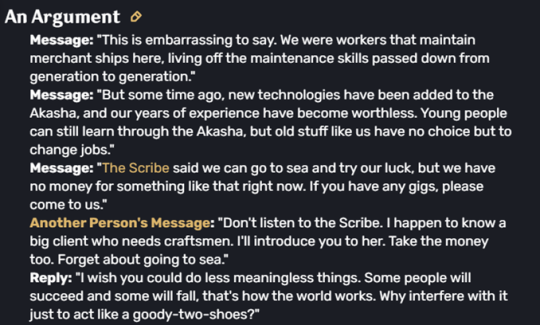
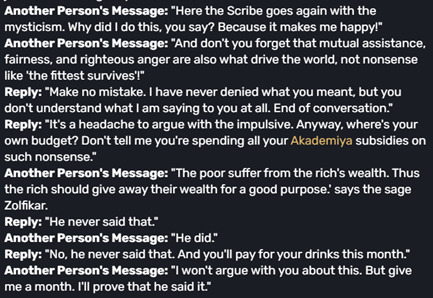
As according to their usual rapport, the two disagree over their differing philosophies, as in sensibility versus rationality, altruism versus egoism. This exchange is reminiscent of the catalyst of their argument. This is where Alhaitham’s assertion that Kaveh’s altruism in helping other scholars keep up with the work required for their project is redundant, as academia is not “charity work” and this method is ultimately ineffective in the long-term. This is due to Kaveh’s assistance being temporary and without his input, the helped scholar will return to producing work of their own capabilities. Overall, it is a short term solution, only serving to detriment Kaveh’s own progress, and therefore the progress of the project.
This correlates to Alhaitham’s metaphor of an idealist being akin to a swimmer, in that eventually, one’s stamina will run out in an effort to save others, resulting in being pulled down by others who are drowning, those which the idealist attempted to save at risk of themselves.
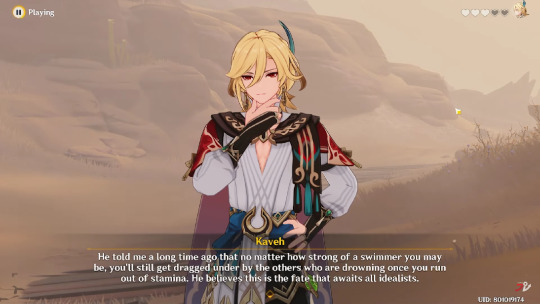
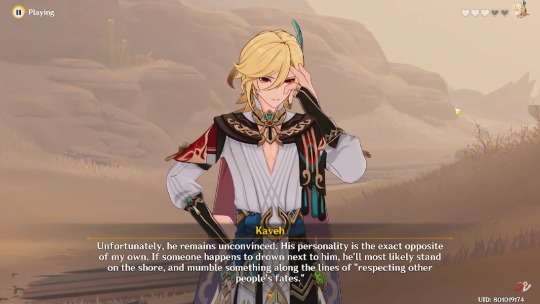
This act of altruism is not in line with Alhaitham’s egoism, and therefore is something to be opposed to. Contrarily, Kaveh opposes Alhaitham by asserting that rather than focussing on the self, more efforts could be spared to helping those around them, which he believes Alhaitham can afford due to his own abilities, as seen within Kaveh's Character Story 5. Alhaitham’s egoism denies the ideal of mutual assistance which Kaveh’s altruism aspires to achieve, and therefore is something to be opposed to (Alhaitham's Character Story 3).
This exchange not only serves to demonstrate the inflexibility of their thinking when it comes to opposing each other’s ideology, but also how the need to assert “correctness” over the other is detrimental to their communication. Rather than showing willingness to reach an alternative solution to a problem by the potential merging of ideals, the matter ultimately remains unsolved as a consensus cannot be reached. Where Kaveh is intent on “prove[ing]” his views to Alhaitham, Alhaitham shuts the dialogue down by claiming that Kaveh does not “understand” his own viewpoint, and thus their conversation is meaningless. In this Bulletin Board exchange, “correctness” is the barricade between recognising any potential in the others’ perspective in order to achieve a compromise.
Additionally, in this Bulletin Board exchange, another critical element of their relationship can be observed. Alhaitham’s particular concerns in Kaveh spending his money on “nonsense” highlights the underlying reason for this exchange. From this comment, the argument is recontextualised through Alhaitham’s intention for getting involved, as Kaveh prompts the workmen to take his money in order to help them out. When Alhaitham states that this is a meaningless action due to the inevitability of people rising or falling on their own accord, rather than solely critiquing Kaveh’s “impulsiv[e]” altruism, as Kaveh interprets, Alhaitham is directly contradicting his own comment – as he is interfering on Kaveh’s decisions.
This relates back to the metaphor of the idealist as a swimmer introduced within Kaveh’s Hangout. Despite Alhaitham expressing that it is the idealist’s fate to inevitably drown with those they risk themselves to save, Kaveh asserts that “someone” will reach out and save him if such a fate awaited him once more, as “someone” has already helped him out before. This is an allusion to Alhaitham, as similar language is used within Kaveh’s voice lines regarding Alhaitham “help[ing]��� him out.

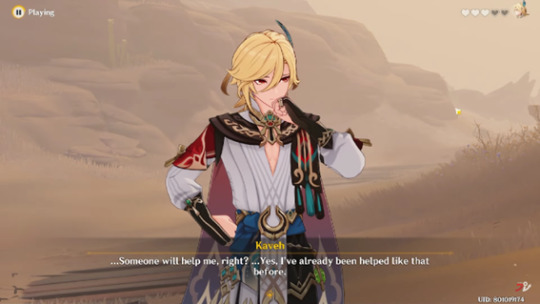

Just as Kaveh has asserted within his Hangout regarding "someone" helping him out once more, here Alhaitham has interfered in act of Kaveh’s altruism at potential risk to himself, questioning where Kaveh is acquiring the money for this endeavour. As concern is evidently the intention behind Alhaitham’s interference here, Kaveh cannot perceive this, and instead attempts to critique Alhaitham’s perspective in return, although Alhaitham states: “Make no mistake. I have never denied what you meant…” This response asserts that Alhaitham does not deny, but rather agrees with, Kaveh’s statement of “mutual assistance, fairness, and righteous anger” driving the world.
In lieu of this, rather than continuing the argument, Alhaitham claims that there is no point to it, as Kaveh does not understand what he is saying – as in, Kaveh does not understand his intentions in interfering being out of concern. He follows this up, regardless, by criticising Kaveh’s handling of his budget, as, evidently, Kaveh has offered to give his own money to these workmen, and refuses to pay for Kaveh’s drinks for that month. For Alhaitham, Kaveh’s lack of self-prioritisation leads him to impulsive altruistic acts which serve to jeopardise his own position, particularly regarding money. If Kaveh believes he can afford to give away money, when he remains in debt and having to live with Alhaitham, he can afford to pay his own tabs – appears to be Alhaitham’s takeaway from this exchange. Although, similarly to the exchange between them posted in Puspa’s Café, this applies to one particular month, insinuating that Alhaitham will continue to pay for next month’s tabs of his own accord (this is discussed further in the analysis of Puspa's Café message board).
The main argument, as well as the disagreement over the speaker of Kaveh’s quote, serves as a humorous exchange, but as a motif for communication it acquires a new meaning. The omission of there being an objective, correct answer to this particular debate serves as a parallel to their conflicting viewpoints, with the basis of their exchange being to “prove” to the other their “correctness” – here, it is in regard to Kaveh. However, “correctness” being the basis of their exchange, and thus, relationship, is challenged with Alhaitham shutting down the initial debate due to Kaveh’s misunderstanding of his meaning. Correctness, then, and its importance, is called into question within this exchange, with Kaveh being the one to chase it; his last message being that he would “prove” himself to be right.
At the core of this message is the idea that Alhaitham harbours an alternative ‘meaning’ than the one that Kaveh assigns to him: “… you don’t understand what I’m saying to you at all.” This is a meaning which Kaveh cannot see to understand due to his current understanding of Alhaitham. Despite Kaveh holding a belief that Alhaitham would reach out to pull him out of the water, as in, offer Kaveh grounding in a wrong-footed approach to chasing his idealism, as he has done before by offering Kaveh a place to live, here, this help is perceived as a critique on Kaveh’s philosophies.
Kaveh holds a notion that Alhaitham actively avoids interfering in the fate’s of others, and yet Kaveh is aware that Alhaitham has effectively interfered with his, offering him help when Kaveh’s choices rendered him homeless. This contradiction of his understanding of Alhaitham’s character is not questioned within dialogue, although he is aware of it, epitomised in the open-ended question: “But what could I possibly do for him?" (Kaveh: Old Sketchbook Page 112). This ties into the narrative proposed in the conclusion of A Parade of Providence, where a silence emerges in the text from Alhaitham stating that the issue of their relationship is not about “correctness”, thus implying for Kaveh to consider what the issue actually is – to answer the question previously left open-ended.
In this bulletin board exchange, Alhaitham has interfered with Kaveh’s act of altruism which is perceived as a critique of Kaveh and his ideologies, whereas Alhaitham asserts that Kaveh is misunderstanding him. This represents the standing of their current relationship, where Kaveh believes Alhaitham holds him in disdain, although this belief is incongruous with Alhaitham’s actions which show his care for Kaveh.
Alhaitham understands Kaveh’s thinking and the reasons for why he acts as he does, but he cannot articulate his concern in a way that Kaveh will understand, both out of Kaveh’s incapability of receiving goodwill, but also due to his logical manner of expression. Kaveh perceives Alhaitham’s concealed expressions of concern as personal gripes and criticisms of his beliefs, and therefore believes that their relationship is based on the scholarly principle of proving the validity of one’s philosophies (as seen within A Parade of Providence and Kaveh's Old Sketchbook). Alhaitham is invested in a personal regard, whereas Kaveh cannot see this due to his perception of Alhaitham and Alhaitham’s inability to communicate in a way Kaveh would understand.
#haikaveh#kavetham#alhaitham x kaveh#kaveh x alhaitham#alhaitham#kaveh#haikaveh meta#genshin meta#thank you to hoyoverse for the sumeru bulletin boards and an extra smooch for kaveh's old sketchbook#the bulletin boards (and every interaction) haikaveh have are so ironic because they're talking#but theyre also not talking#so i cant even say 'just talk' because thats all they do and they never seem to be on the same page#post parade of providence... what do you have in store for us...
35 notes
·
View notes
Text
Notes on 'Understanding Marx’s Theses On Feuerbach'
I try to analyze and take some notes on articles I read. Mostly reordering text, paraphrasing, and summarizing. Putting it on my blog for convenience. Text below cut.
Line One
Thesis I : Humans can alter their reality (and constantly do so)
… but he does not conceive human activity itself as objective activity. Hence, in The Essence of Christianity, he regards the theoretical attitude as the only genuinely human attitude, while practice is conceived and fixed only in its dirty-judaical manifestation.
Marx’s point in this initial thesis is to critique old materialism, including Feuerbach, for viewing humans as passive in sensing their surroundings. Apparently, humans merely see, touch, smell, hear, and taste in a one-sided way. That is, the environment acts on humans but not the other way round. Marx hammers home that this doesn’t square with reality, where humans have the capacity to alter their reality and constantly use that capacity. Marx argues that this active, practical alteration of reality itself changes the mental life of humans.
So there is no fixed human consciousness as Feuerbach believes. Reality, and human ideas along with it, is in eternal motion. Marx grants credit to idealist philosophy, which sees the world of ideas and non-material, spiritual concepts as the guiding force of life, for emphasizing the active nature of human sensations.
Thesis III : The changing of these conditions is revolutionary practice.
The materialist doctrine concerning the changing of circumstances and upbringing forgets that circumstances are changed by men and that it is essential to educate the educator himself. This doctrine must, therefore, divide society into two parts, one of which is superior to society. The coincidence of the changing of circumstances and of human activity or self-changing can be conceived and rationally understood only as revolutionary practice.
Thesis II : (Since people can affect reality) then truth must also be revealed by putting it into practice.
He says that the changing of our surroundings and of human society is essentially a revolutionary practice.
The question whether objective truth can be attributed to human thinking is not a question of theory but is a practical question. Man must prove the truth — i.e. the reality and power, the this-sidedness of his thinking in practice. The dispute over the reality or non-reality of thinking that is isolated from practice is a purely scholastic question.
In this thesis, Marx is following from his argument in the first one. Here, he is stating that objective truth cannot be determined just by thinking. It requires direct engagement with reality, with practice rather than passive theory. In a word, the proof of the pudding is in the eating of it.
When we try to determine what is real by interpreting abstract logical concepts alone, through a priori thinking, we are unable to successfully determine truth. Determining truth begins with concrete reality: practical, empirical study of it through practice and experimentation.
Thesis VIII : The knowledge we derive from putting ideas into practice is theory.
All social life is essentially practical. All mysteries which lead theory to mysticism find their rational solution in human practice and in the comprehension of this practice.
The social life of these social beings is practical. It involves active engagement among themselves and with their environment. To determine truth or falsehood about reality, we have to engage with reality practically and understand this practice.
If a particular conception of something is used to try and get a particular result, and it succeeds in practice, it indicates the truth of that conception. If it fails, it indicates the opposite. The knowledge we derive from practice is called theory. Theory must be kept in dialogue with practice, or else it becomes nonsensical and obscurantist.
Thesis XI : All thinkers are active participants in the changing of our reality.
The philosophers have only interpreted the world, in various ways; the point is to change it.
Understanding reality, what is true and untrue, is not a passive thought exercise. No thinker is only a thinker. All thinkers occupy a specific place in a specific society. To understand the world, one must interact with it practically from a specific standpoint, whether one is aware of holding that standpoint or not.
Passively interpreting the world is an exercise in faulty reasoning and ends up naturalizing the status quo social order. One can never be truly neutral. To try and take a neutral stance is to side with the way things are. For example, many liberals assume capitalism is the natural state of humanity. Marx, on the other hand, argues that the point of understanding the world through practice is to be a partisan in our social reality.
We work out what ideas are correct and incorrect so we can successfully alter reality in accordance with a revolutionary plan. Marx’s sociological project is itself committed to communist revolution.
Line Two
Thesis IV:
Feuerbach sought to demonstrate how God, and religion broadly, comes from humans, not the other way around. Marx agrees with Feuerbach. But he disagrees with his view of humans as unchanging. He points out that real, concrete humanity would not express itself in religious terms unless that humanity had contradictions within itself. That is, the complexities of it, distinctions within it, and tensions within it are the basis for the rise of religion.
Feuerbach starts out from the fact of religious self-alienation, of the duplication of the world into a religious world and a secular one. His work consists in resolving the religious world into its secular basis.
But that the secular basis detaches itself from itself and establishes itself as an independent realm in the clouds can only be explained by the cleavages and self-contradictions within this secular basis. The latter must, therefore, in itself be both understood in its contradiction and revolutionized in practice. Thus, for instance, after the earthly family is discovered to be the secret of the holy family, the former must then itself be destroyed in theory and in practice.
Reality, especially the reality of human society, is not static or uniform. It is eternally self-contradictory and constantly changing. Therefore, we cannot alter society in a revolutionary way unless we understand the material origins of ideas, and the need to revolutionize the material basis if we wish to revolutionize ideas.
In its reality it is the ensemble of the social relations.
Thesis VI
Feuerbach resolves the religious essence into the human essence. But the human essence is no abstraction inherent in each single individual.
Feuerbach, who does not enter upon a criticism of this real essence, is consequently compelled:
1. To abstract from the historical process and to fix the religious sentiment as something by itself and to presuppose an abstract — isolated — human individual.
2. Essence, therefore, can be comprehended only as ‘genus,’ as an internal, dumb generality which naturally unites the many individuals.
Feuerbach believes in a trans-historic, even ahistorical, human “species-essence.” In other words, he believes humans have an inherent nature within them. This abstract, generalized concept is apparently what unites humanity as a species. Marx, on the other hand, asserts that Feuerbach fails to recognize that all humans, from their behavior to their beliefs, desires, and personalities are inseparable from the particular society they are a part of.
Humans cannot be anything else but part of society, since humans are social beings that are unable to survive as a species in conditions of individual isolation. There is no such thing as generalized humanity, only socially and historically specific humanity. What unites humans is the relations between them, being part of the same super-organism.
Thesis VII
Feuerbach, consequently, does not see that the ‘religious sentiment’ is itself a social product, and that the abstract individual whom he analyses belongs to a particular form of society.
Feuerbach has an abstract, overly generalized conception of what religion is. Religion is not the same across time and space because its specific, concrete social basis is not the same across time and space. Religion is always particular to the set of social relations it emerges within, including the history and location of those social relations. Ideologies cannot be arbitrarily generalized across the world and world history. One must study ideologies socially and historically.
Line Three
Thesis IX
The highest point reached by contemplative materialism, that is, materialism which does not comprehend sensuousness as practical activity, is contemplation of single individuals and of civil society.
The highest point of the old materialism which Marx refers to here is to political economists like David Ricardo. The political economists engage in a “social materialist” study of reality, using empirical observations to work conclusions about how society works. Marx critiques them here and elsewhere for limiting themselves to capitalist production and exchange, what is sometimes called civil society. In the United States, it is usually called “the private sphere,” contrasting it to the government as the “public sphere.”
This limited scope of the political economists, both in their historical perspective and the reach of social relations that they study, leads to their conceiving capitalism as something which has always existed. They believe humans are “homo-economicus,” that they have always behaved according to the rules of the competitive capitalist market.
Often, they even claim all markets are capitalist, and therefore capitalism existed as long as people have been changing things. In Marx’s view, this is an extremely limited and naive understanding. And it must be transcended by a new way of studying society.
Thesis X
The standpoint of the old materialism is civil society; the standpoint of the new is human society, or social humanity.
The old materialism Marx refers to here is still the political economists and liberal philosophers. As explained for Thesis IX, they limited their scope to civil society and ended up with a crude, underdeveloped view of human society. The new materialism, that project which Marx committed himself to, is oriented toward a well-rounded understanding of humanity which accounts for the whole of social relations, even beyond the direct realm of production.
Taking this with his previous critiques of abstract and trans-historical thinking, this new materialism also understands that all social relations and ideas are historical. They cannot be understood except by placing them into the historical threads they are part of.
0 notes
Text
In the Tractatus, Wittgenstein developed a philosophy that was deeply embedded in the world – not in idealised realms of thought like the rational idealist Russell, but in how we talk about the world. Rather than coming up with a theory about how words and facts represent reality, which is crucial to both realists and anti-realists, he determined that representation is irrelevant. No one needs to say what facts and objects represent. They are simply there, embedded in our picture of reality. To say what they represent is actually nonsense, absurd. As in the visual realm, a second picture is not necessary to explain what a first picture means; if it were otherwise, we’d fall prey to infinite recursion.
What Wittgenstein understood is that you can’t use words to explain representation, because words are representations themselves. It would be like trying to travel outside the Universe to show somebody what the Universe is – a feat that’s both impossible and unnecessary. A sentence shows what it means by its own sense.
[...]
Language and mathematics are a means of controlling and modifying collective human action so that work gets done.
This is language as culture rather than language as picture. And culture includes ritual. Like all ritualistic communities, physics contains its rules, interpretations, specialised vocabulary, a community of adherents who are admitted to the arcane arts, levels of indoctrination, and gatekeepers. While some societies relate ritual to the appeasement of gods and spirits, in science they serve to therapeutically appease our philosophical needs. Competition between interpretations is not unlike competition between clan gods, trying to achieve cultural dominance.
Evolutionary cultural anthropology backs up this view, having demonstrated that language is deeply connected to ritual and religion. Likewise, the vocabulary, grammar and procedures of science are themselves ritualistic, with each subdiscipline having its own mores and norms. These are necessary because it is impossible for scientists to evaluate new research purely based on factual merits; it often takes years to validate a new theory or experimental result.
[...]
The conclusion from all of this is that interpretation and representation in language and mathematics are little different than the supernatural explanations of ancient religions. Trying to resolve the debate between Bohr and Einstein is like trying to answer the Zen kōan about whether the tree falling in the forest makes a sound if no one can hear it. One cannot say definitely yes or no, because all human language must connect to human activity. And all human language and activity are ritual, signifying meaning by their interconnectedness. To ask what the wavefunction means without specifying an activity – and experiment – to extract that meaning is, therefore, as sensible as asking about the sound of the falling tree. It is nonsense.
- Timothy Andersen, “Quantum Wittgenstein”
18 notes
·
View notes
Text
I decided to take the personality tests for some Black Clover characters to see what they get, here are the results!
——————————
⚖️🔹Marx: Logistician ISTJ-T (Practical and fact-minded individuals, who’s reliability cannot be doubted)🔹⚖️
“My observation is that whenever one person is found adequate to the discharge of a duty... it is worse executed by two persons, and scarcely done at all if three or more are employed therein.”
Logisticians don’t make many assumptions, preferring instead to analyze their surroundings, check their facts and arrive at practical courses of action. Logistician personalities are no-nonsense, and when they’ve made a decision, they will relay the facts necessary to achieve their goal, expecting others to grasp the situation immediately and take action. Logisticians have little tolerance for indecisiveness, but lose patience even more quickly if their chosen course is challenged with impractical theories, especially if they ignore key details – if challenges becomes time-consuming debates, Logisticians can become noticeably angry as deadlines tick nearer.
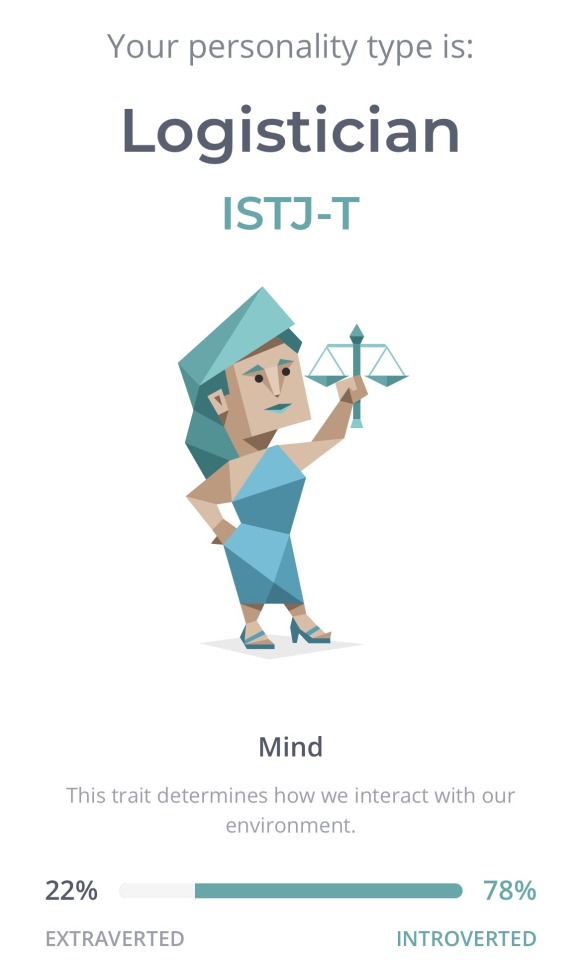
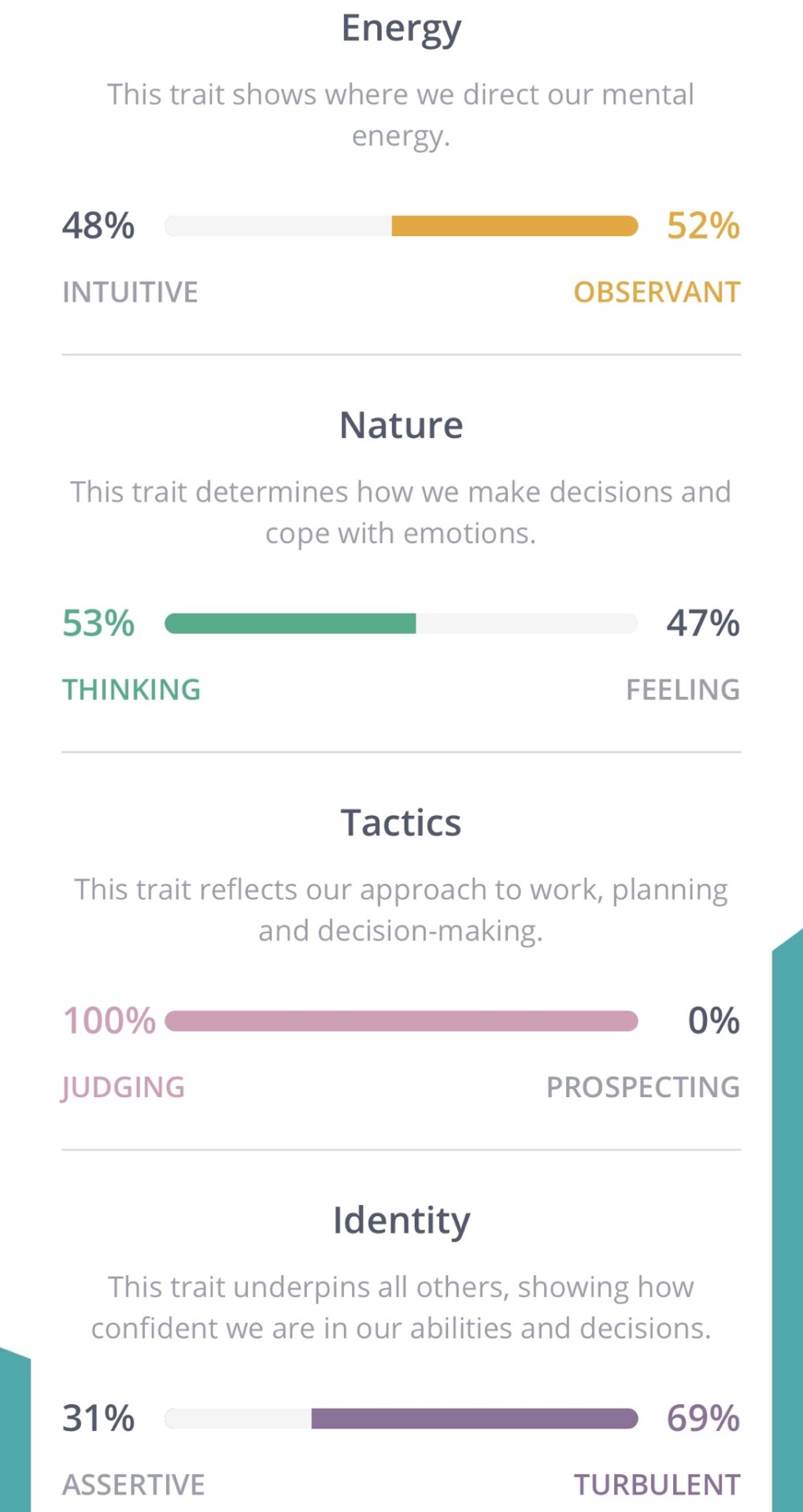
Logisticians have sharp, fact-based minds, and prefer autonomy and self-sufficiency to reliance on someone or something. Dependency on others is often seen by Logisticians as a weakness, and their passion for duty, dependability and impeccable personal integrity forbid falling into such a trap. When Logisticians say they are going to get something done, they do it, meeting their obligations no matter the personal cost, and they are baffled by people who don’t hold their own word in the same respect. Combining laziness and dishonesty is the quickest way to get on Logisticians’ bad side. Consequently, people with the Logistician personality type often prefer to work alone, or at least have their authority clearly established by hierarchy, where they can set and achieve their goals without debate or worry over other’s reliability.
Their defining characteristics of integrity, practical logic and tireless dedication to duty make Logisticians a vital core to many families, as well as organizations that uphold traditions, rules and standards, such as law offices, regulatory bodies and military. People with the Logistician personality type enjoy taking responsibility for their actions, and take pride in the work they do – when working towards a goal, Logisticians hold back none of their time and energy completing each relevant task with accuracy and patience.
Logisticians need to remember to take care of themselves – their stubborn dedication to stability and efficiency can compromise those goals in the long term as others lean ever-harder on them, creating an emotional strain that can go unexpressed for years, only finally coming out after it’s too late to fix. If they can find coworkers and spouses who genuinely appreciate and complement their qualities, who enjoy the brightness, clarity and dependability that they offer, Logisticians will find that their stabilizing role is a tremendously satisfying one, knowing that they are part of a system that works.
——————————
👑🟡Julius: ENFP-A Campaigner (Enthusiastic, creative and sociable free spirits, who can always find a reason to smile.) 🟡👑
“It doesn’t interest me what you do for a living. I want to know what you ache for – and if you dare to dream of meeting your heart’s longing.”
Campaigners are true free spirits – outgoing, openhearted, and open-minded. With their lively, upbeat approach to life, they stand out in any crowd. But even though they can be the life of the party, Campaigners don’t just care about having a good time. These personality types run deep – as does their longing for meaningful, emotional connections with other people.
Even in moments of fun, Campaigners want to connect emotionally with others. Few things matter more to these personality types than having genuine, heartfelt conversations with the people they cherish. Campaigners believe that everyone deserves to express their feelings, and their empathy and warmth create spaces where even the most timid spirits can feel comfortable opening up.
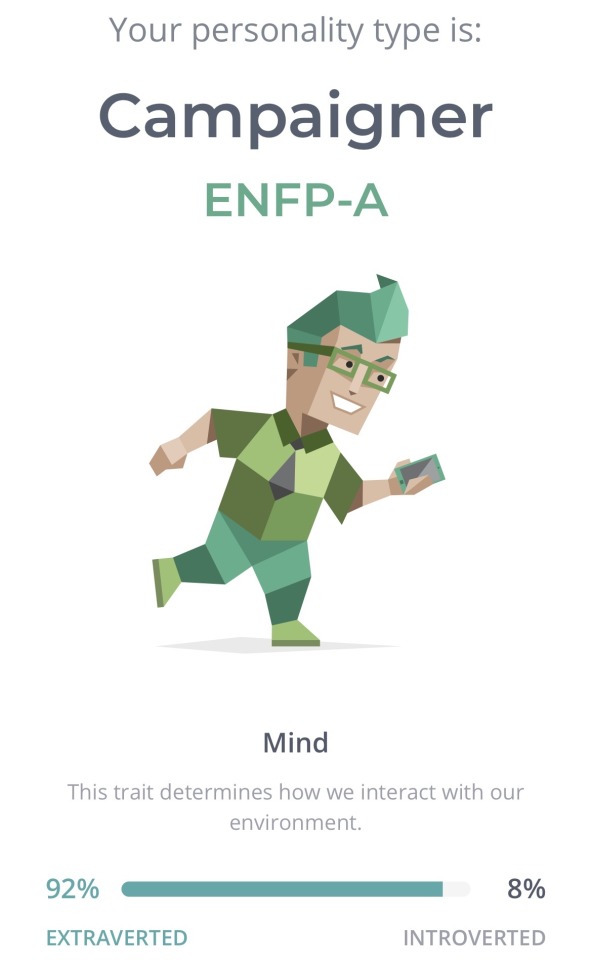
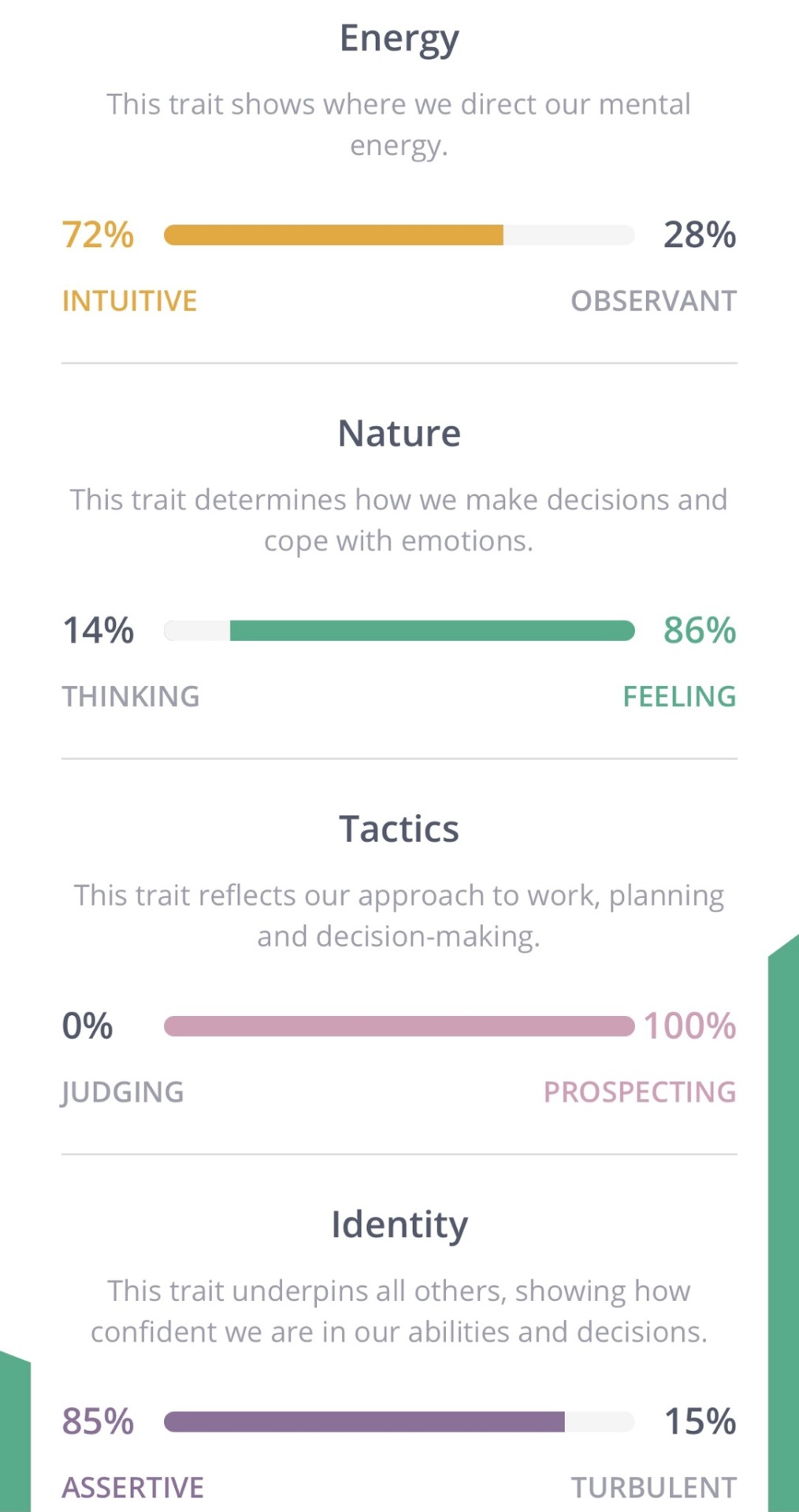
Friendly and outgoing, Campaigners are devoted to enriching their relationships and their social lives. But beneath their sociable, easygoing exteriors, they have rich, vibrant inner lives as well. Without a healthy dose of imagination, creativity, and curiosity, a Campaigner simply wouldn’t be a Campaigner. In their unique way, Campaigners can be quite introspective. They can’t help but ponder the deeper meaning and significance of life – even when they should be paying attention to something else. These personalities believe that everything – and everyone – is connected, and they live for the glimmers of insight that they can gain into these connections.
When something sparks their imagination, Campaigners can show an enthusiasm that is nothing short of infectious. These personalities radiate a positive energy that draws in other people, and Campaigners may find themselves being held up by their peers as a leader or guru. But once the initial bloom of inspiration wears off, Campaigners can struggle with self-discipline and consistency, losing steam on projects
——————————
🌱⚪️William: Advocate INFJ-T (Quiet and mystical, yet very inspiring and tireless idealists.)⚪️🌱
“Treat people as if they were what they ought to be and you help them to become what they are capable of being.”
Advocates’ unique combination of personality traits makes them complex and quite versatile. For example, Advocates can speak with great passion and conviction, especially when standing up for their ideals. At other times, however, they may choose to be soft-spoken and understated, preferring to keep the peace rather than challenge others.
Advocates might find themselves feeling especially stressed in the face of conflict and criticism. These personalities tend to act with the best of intentions, and it can frustrate them when others don’t appreciate this. At times, even constructive criticism may feel deeply personal or hurtful to Advocates.
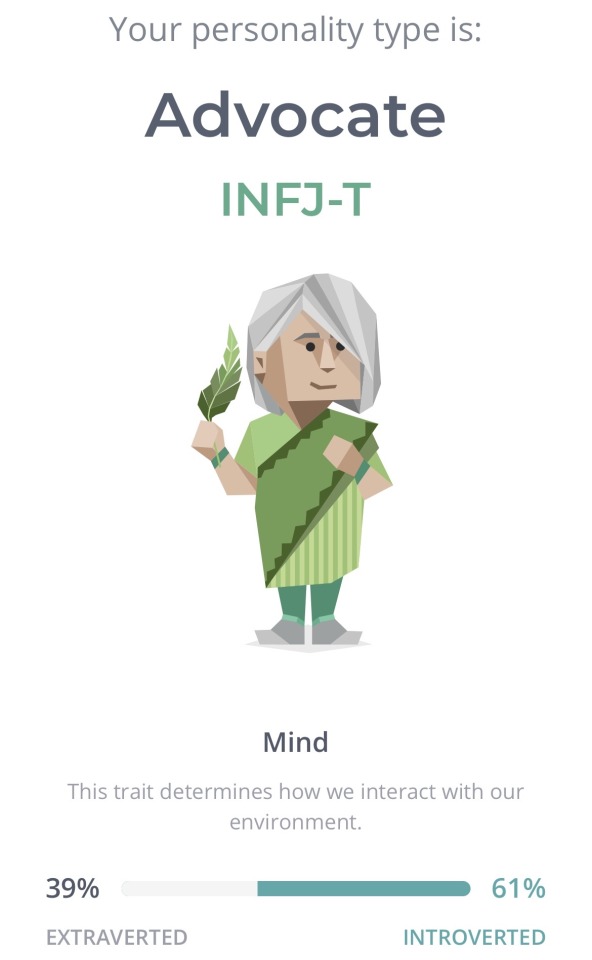
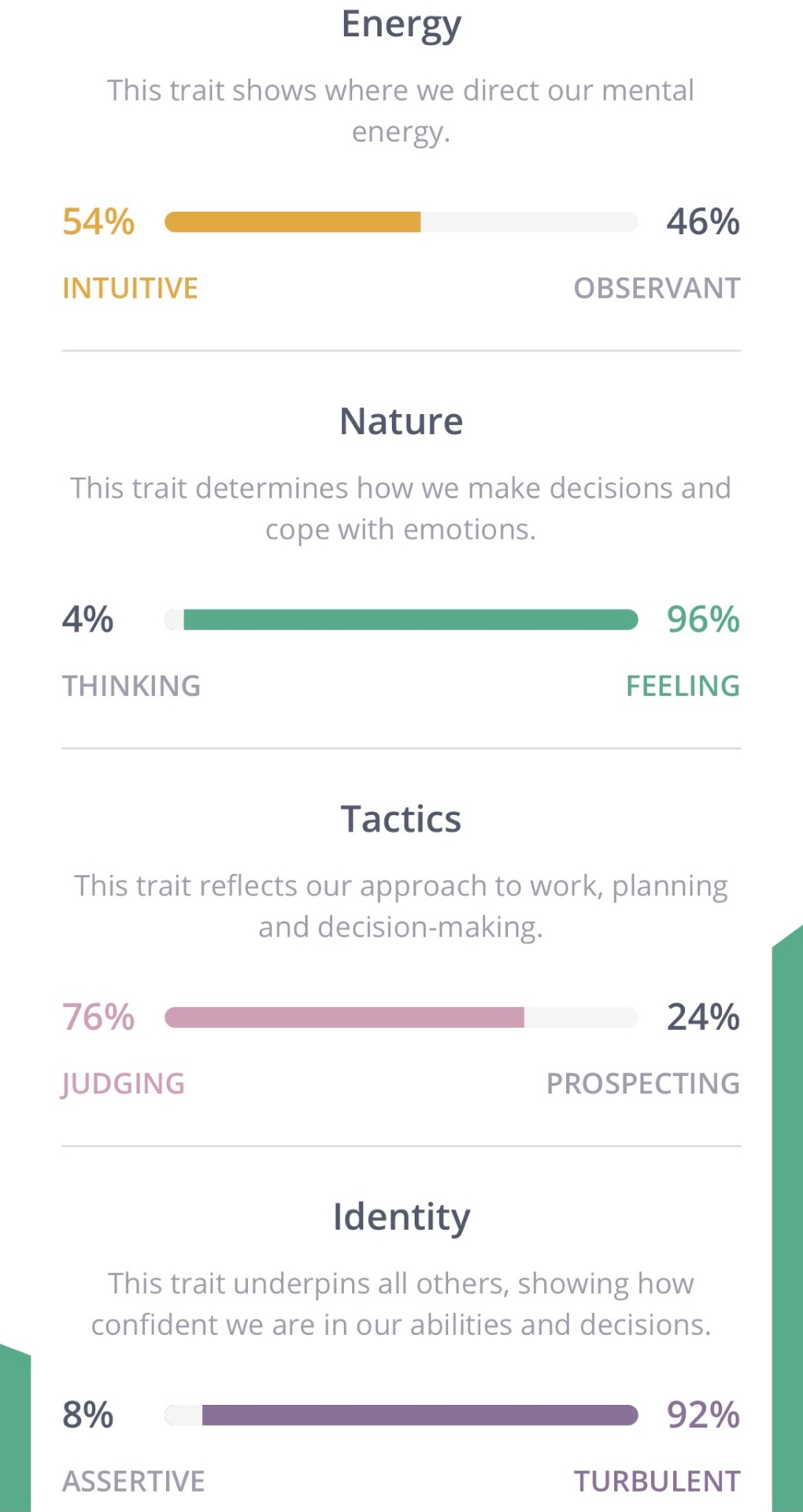
Advocates may be reserved, but they communicate in a way that is warm and sensitive. This emotional honesty and insight can make a powerful impression on the people around them. Advocates value deep, authentic relationships with others, and they tend to take great care with other people’s feelings. That said, these personalities also need to prioritize reconnecting with themselves. Advocates need to take some time alone now and then to decompress, recharge, and process their thoughts and feelings.
Advocates may see helping others as their purpose in life. They are troubled by injustice, and they typically care more about altruism than personal gain. As a result, Advocates tend to step in when they see someone facing unfairness or hardship. Many people with this personality type also aspire to fix society’s deeper problems, in the hope that unfairness and hardship can become things of the past.
Many Advocates feel compelled to find a mission for their lives. When they encounter inequity or unfairness, they tend to think, “How can I fix this?” They are well-suited to support a movement to right a wrong, no matter how big or small. Advocates just need to remember that while they’re busy taking care of the world, they need to take care of themselves too.
——————————
🍺⚫️Yami: Entrepreneur ESTP-A (Smart, enthusiastic and very perceptive people, who truly enjoy living on the edge.)⚫️🍺
“Life is either a daring adventure or nothing at all.”
Entrepreneurs are the likeliest personality type to make a lifestyle of risky behavior. They live in the moment and dive into the action – they are the eye of the storm. They are forced to make critical decisions based on factual, immediate reality in a process of rapid-fire rational stimulus response. This makes school and other highly organized environments a challenge for Entrepreneurs. It certainly isn’t because they aren’t smart, and they can do well, but the regimented, lecturing approach of formal education is just so far from the hands-on learning that Entrepreneurs enjoy. It takes a great deal of maturity to see this process as a necessary means to an end, something that creates more exciting opportunities.
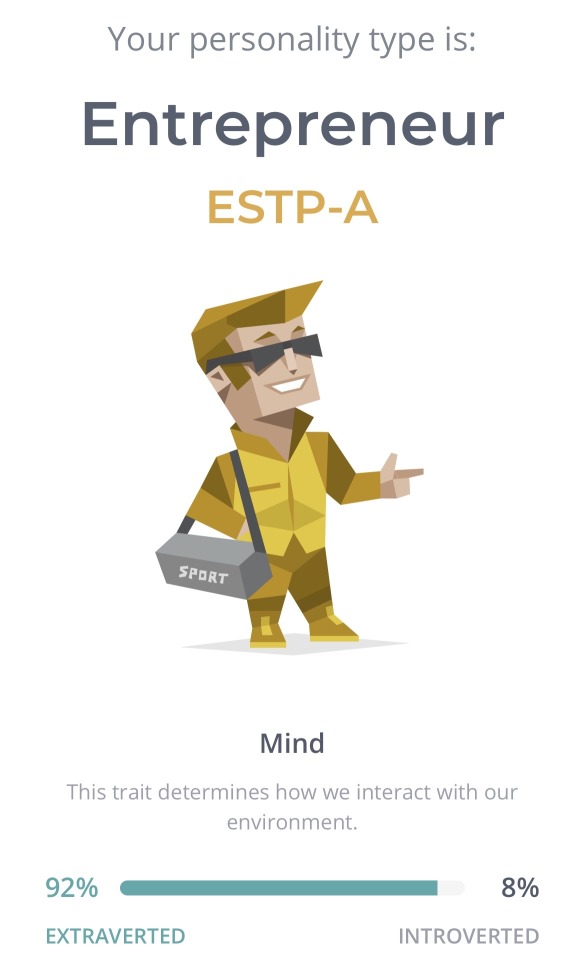
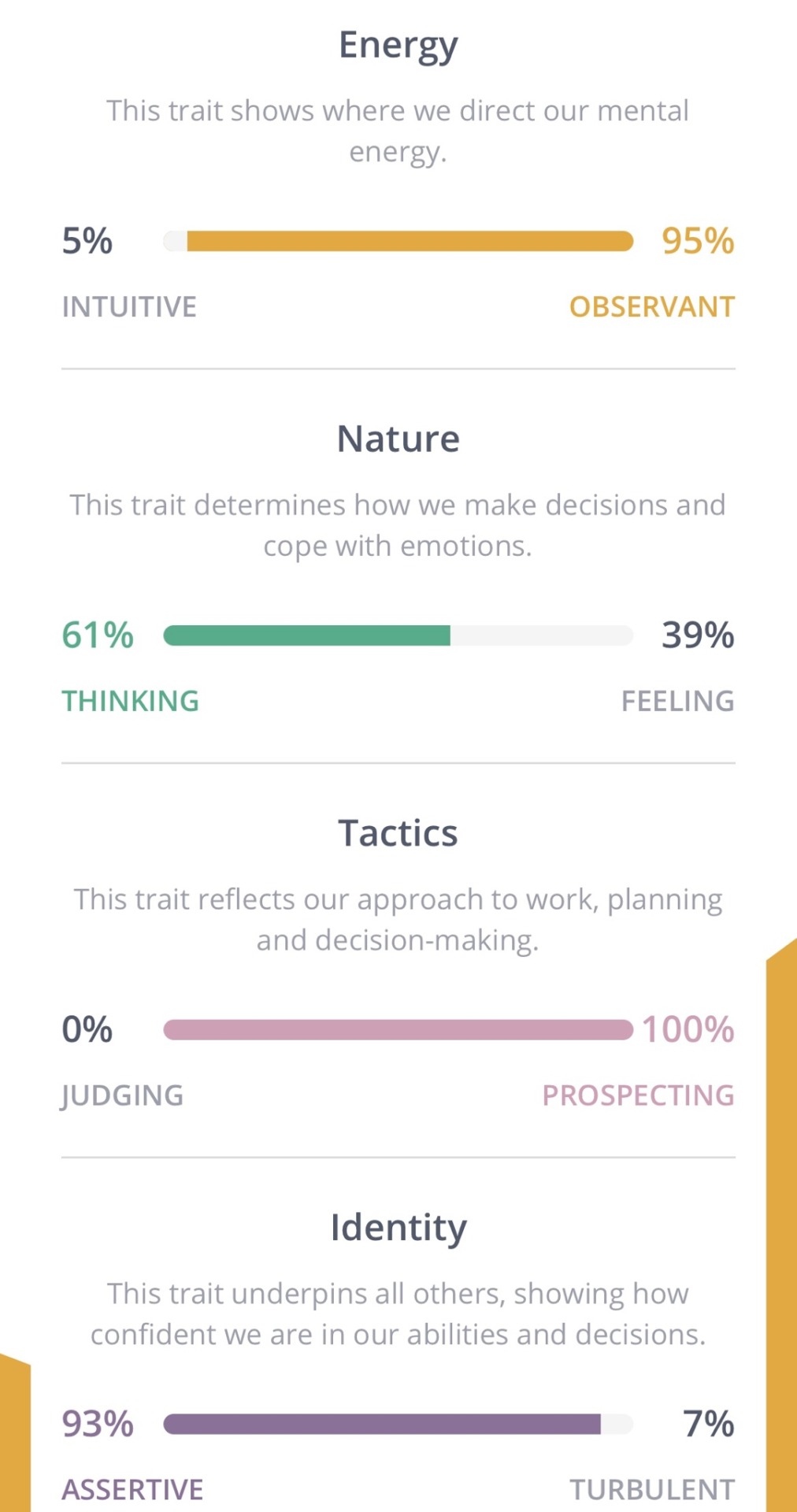
Also challenging is that to Entrepreneurs, it makes more sense to use their own moral compass than someone else’s. Rules were made to be broken. This is a sentiment few high school instructors or corporate supervisors are likely to share, and can earn Entrepreneur personalities a certain reputation. But if they minimize the trouble-making, harness their energy, and focus through the boring stuff, Entrepreneurs are a force to be reckoned with.
With perhaps the most perceptive, unfiltered view of any type, Entrepreneurs have a unique skill in noticing small changes. Whether a shift in facial expression, a new clothing style, or a broken habit, people with this personality type pick up on hidden thoughts and motives where most types would be lucky to pick up anything specific at all. Entrepreneurs use these observations immediately, calling out the change and asking questions, often with little regard for sensitivity. Entrepreneurs should remember that not everyone wants their secrets and decisions broadcast.
Entrepreneurs are full of passion and energy, complemented by a rational, if sometimes distracted, mind. Inspiring, convincing and colorful, they are natural group leaders, pulling everyone along the path less traveled, bringing life and excitement everywhere they go. Putting these qualities to a constructive and rewarding end is Entrepreneurs’ true challenge.
——————————
If you want to read more about their personality types, or other personality types- the website is 16personalities.com ! I find it very amazing at how accurate these are!
41 notes
·
View notes
Text
Your Actual Myers Briggs Personality Type Test
F and T stand for feeler and thinker. N and S stand for intuitive and sensor. i=introverted e=extraverted
To get accurate results, be honest with yourself of which comes most natural to you.
Are you more abstract (N) or sensory-oriented (S)?
Follow your gut instincts (Ni) or multiple angles (Ne)?
Are your sensory experiences of the physical surroundings in front of you (Se) or linked to past information (Si)?
Do you tend to follow your heart (feeler) or brain (thinker) first?
Feeling for others (Fe) able to pick up on how they feel, or for yourself (Fi) knowing how you feel first?
Thinking in the brain (Ti) or thinking for others and the environment around you (Te)?
Do you prefer to judge (Dominant F/T) or perceive (Dominant N/S)?
Worst self-critic that may or may not be directed towards others (your dominant function mirroring this)?
What makes you feel vulnerable (mirrors your tertiary function)?
Consistent results mean Assertive (A) and inconsistent results mean Turbulent(T) which means if you had Ni as a result for example, it would be the opposite function of that which is Se that comes right after your most preferred one. And if you did have a hard time identifying your dominant function, what is your biggest weakness (N, S, F, T)? Your greatest strength will be the opposite letter (N-S and F-T).
16 Results:
Ni-Fe: INFJs are unique, mysterious people. They're wise and natural psychics whom can guide others with their high emotional intelligence. It may be hard to spot an INFJ at first, but once you do never do anything to have them 'INFJ Door Slam' you.
Fi-Ne: INFPs are shy, sentimental individuals. Their kindness is wholesome and this idealistic personality is interesting to get to know. In fact, they are actually the life of the party after shortly warming up to you. INFPs all have the dreamy 'INFP eyes' that are hard to walk away from.
Fe-Ni: ENFJs are charismatic, socially adept personalities whom strive to make others feel good. Everything about them is a reason to talk to one at some point in your lifetime.
Ne-Fi: ENFPs are creative, hyperactive individuals whom can talk nonstop about their endless thoughts. They're able to brainstorm the best of abstract ideas that can inspire others. At first, they may come off shy like their introverted counterparts. But after they recharge from alone time, they are return to their silly personas. Never disrespect an ENFP or they can pull off their well-known 'Te-Bitchslap' if they feel hurt.
Ni-Te: INTJs are calm, analytical individuals keen at evidential explanations. They always have something to prove their arguments and come up with solutions to solve challenges. If they were raised in certain situations of little to no creativity, they can come off as rather sensitive instead of having a calm facade. Having the 'INTJ Death Stare', this does not mean they have anything against you. In fact, you probably aren't even on their mind when they're just being reflective.
Ti-Ne: INTPs are rational, intellectual people whom tend to be obsessed with theories. They are deep thinkers seeing the truth beyond what cannot be seen.
Te-Ni: ENTJs are leaders whom can easily assert themselves. Direct and decisive, they are very-well accomplished individuals skilled at getting things done in an efficient manner. They sometimes can be reserved, having a hard time socializing with others.
Ne-Ti: ENTPs are clever, innovative individuals whom can help people view different perspectives they never thought about before. They come up with good arguments and are known to be the devil's advocate with their controversial shenanigans. There is also many ENTPs whom happen to be demonstrative, letting others have the limelight.
Ti-Se: ISTPs are the cool, 'Strong-Silent-Type' of the 16 personalities whom quietly rationalize the system. They see everything for what is and make you think twice before being influenced by what has never been there to begin with in the first place.
Fi-Se: ISFPs are timid or individualistic people. They're people of sensory experiences and want others to experience the same thing as well. They live in the moment and make original judgements.
Se-Ti: ESTPs are bold, energetic people whom are fun to be around. They're straightforward and great at a multitude of things that require physical exertion.
Se-Fi: ESFPs are fun-loving, flamboyant individuals whom are the life of the party. Their spontaneous personalities are what makes them good entertainers.
Si-Te: ISTJs are practical, no-nonsense individuals. They're reliable, helping others get things done with practical matters and tell you the truth as it is. ISTJs greatly value honesty, realism, and past experiences.
Si-Fe: ISFJs are loyal, supportive people whom want to be there for you. They help out people with their detail-oriented and responsible personalities.
Te-Si: ESTJs may or may not seem like aggressive and domineering people at first, but they are keen at structuring others lives to improve themselves. They have good memory and can form excellent arguments by concrete proof.
Fe-Si: ESFJs are warm, welcoming people whom organize the social environment around them. They ensure people get along and act considerate towards each other. Disharmony is the last thing on an ESFJ's mind and they prefer to keep the peace.
3 notes
·
View notes
Text
[Hazbin Hotel Meta] Hazbin MBTIs~! Get your fresh Hazbin Hotel MBTIs here~!
I feel pretty…happy and confident about these ;w; I tried to use best judgement, the canonical info we have so far (even if a bit vague, gotta take what we can get!), and took into consideration like…that I’m really trying to be as realistic as possible. I really enjoy keeping to canon and building off realistic expressions of the characters even with a lot of the interactions between them being so bombastic or humorous. This is how I like to go about my writing for them too :)
Alastor: ESTP - Extroverted, Sensing, Thinking, Perceiving
Al is driven and motivated (on a base level, from what it seems) by pure stimulus. Regarding stimuli in his environment, he’s not looking to gain any philosophical or emotional insight, development or further connection to others from it; he wants to enjoy the experience in and of itself, even more so with the ability to manipulate it or those involved. Alastor wants action, entertainment, and the ability to make decisions, watch others make decisions, and watch the pieces fall where they may (long as that doesn’t lead to actual stability, peace or resolution). He enjoys engaging with others on his own terms/working a room, shaking things up and not just thinking about ‘what ifs?’, but actively creating those situations. He doesn’t want to be restricted, controlled or bored. ESTPs can tend to be impatient, self-important and prideful, have a habit of turning their noses up at others, and can be selfish. All these things definitely pertain or easily could pertain to Al.

Angel (and Cherri): ESFP - Extroverted, Sensing, Feeling, Perceiving
Angel and Cherri revel in dramatics and energy! They are bright, relatively warm (given…where they are, lol), sociable and like to have the spotlight on them. They take pleasure in the things around them and engaging with their surroundings. They’re enthusiastic, loud, active and want to be seen and heard. Real lives of the party that are generally supportive of their friends and unafraid to speak their minds. All this taken into account, some downfalls of their personalities are that they can react aggressively towards critique or inquiry, get bored easier than (most) other types and are easily distracted. Their empathy can also come off as superficial or insincere because of their playful, non-serious attitudes (remember, we even got to see Angel struggle with empathy and support when he was attempting to console Charlie).

Charlie: ENFJ - Extroverted, Intuitive, Feeling, Judging
Charlie is the definition of an ENFJ. She is a benevolent idealist who wants to see the best in people, and honestly believes in the best in people (as we see with her dream/goal for the Happy Hazbin Hotel. She wants to inspire and be inspired. Her type is actually pretty intrinsic to the plot at large). Charlie is unbelievably selfless; her motivations and what she wishes to contribute to those and the world around her are for their betterment. She is infatuated with the thought of things but needs the assistance in executing those thoughts and dreams into reality. Weaknesses that accompany this type and definitely Charlie herself are: not thinking things through, stubbornness/lack of flexibility (particularly for themselves), and being prone to burning themselves out. From the onset of the pilot all the way until the end she’s pushing herself, having difficulty really taking advice/direction and isn’t willing to see beyond her own scope of things.

Husk: ISTP - Introverted, Sensing, Thinking, Perceiving
Coming up with a likely MBTI for Husk was an enjoyable challenge! It definitely put my critical interpreting to the test and also helped me more critically assess the MBTIs for the other characters (though most of those wrote themselves/were much more apparent imo).
Husk is an avid gambler and alcoholic drinker, and these two things guided me in understanding his type. He appreciates tactile interaction and socialization on his own terms (as is required by most gambling), easily comes to decisions/conclusions from changes/information in his environment and is sensitive, for better or worse, to stimuli in his environment as many SPs are, and likely craves it actively or on a base level. Husk seems to be quietly dependable and competent/effective based off of Alastor’s (albeit humorously manipulative) words to him, which is a hallmark for ISTPs. He’s operationally a loner, but not misanthropic, just reserved/internalized unless caused to act. Some obvious issues that can arise with this MBTI and clearly would apply to Husk are: being distant or closed off, potentially risky or self-destructive behavior (yuuup~), and lacking compassion or emotional sensitivity.
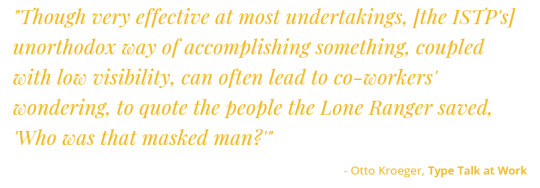
Sir Pentious: ENTJ - Extroverted, Intuitive, Thinking, Judging
Pentious is goal-oriented (as are most other NJs), rational, intelligent and clever (despite his loud personality and Saturday morning villain aesthetic lol). He desires order and values exacting organized, calculated plans. He’s rather assertive and craves a high degree of control in his surroundings (I mean he’s a mechanical mastermind hellbent on ruling Hell and attaining more recognition and influence, after all). Being an EN type, he has a natural charisma, and much like many charismatic types, he wants to be noticed and valued. ENTJs have a tendency to desire legacy and recognition for their accomplishments since they are born leaders who enjoy setting all the dominoes in place, this is no truer than for Sir Pen. If he is to set up a lengthy, complex far-reaching plan to exact his visions, he wants to be noted, and noted well for that. Weaknesses that tend to hinder ENTJs are being overly confident and condescending, bossy, inflexible and prone to outbursts/meltdowns. If that’s not our snek idk what is tbh.

Vaggie: ISTJ - Introverted, Sensing, Thinking, Judging
Vaggie is logical (if fiery; which should not be confused for Feeling), perceptive (which should not be confused for Perceiving), reliable, detail-oriented and hard-working. She is incredibly dedicated and forward with her intents and expects no nonsense. ISTJs like to keep a keen eye on those in their surroundings and expect those around them to abide by the standards they set as they truly do value the tasks at hand and the well-being of those around them/those they’re in charge of or aiding. If we look at her interactions with Angel in the limo, and Alastor back at the hotel, it is super clear that she is protective personally and professionally of those under her care but also the hotel/Charlie’s endeavors. ISTJs aren’t typically noted as being the guardians and protectors, and that’s usually because others are only viewing those roles from a purely emotional standpoint. Though ISTJs still have feelings like any other human-being, they approach protecting and guarding as a matter of duty first and foremost (that they wouldn’t undertake if they didn’t care in the first place). Very Vaggie. Weaknesses that can befall people of this MBTI are: being stuck in their ways/stubborn, brash and indelicate, and being unable to compromise for/with others.

I hope I did justice to these wonderful characters and helped extrapolate on them some more! With any luck, ya’ll enjoy this and it serves as a great resource for writing these characters and their interpersonal interactions ;w;/ I know there’s no way to confirm any of this as canon, but I’d like to think it’s hopefully not too far off lol Thanks for reading~!!
#alastor#alastor hazbin hotel#sir pentious#angel dust hazbin hotel#hazbin hotel#charlie hazbin hotel#husk hazbin hotel#vaggie hazbin hotel#cherri bomb hazbin hotel#hazbin hotel meta#camerins metas#hazbin hotel theories
67 notes
·
View notes
Text
🔥🌏🌬🐇
if Aries were
an Earth sign instead they would be a Capricorn - forges a presence, setting high challenges for themselves and follows the compass of aspiration, aims to embody the highest version of themselves and live up to their name - and this is the ultimate victory
an Air sign instead they would be Gemini - quick, swift, sharp, and mischievous in mind, every day is an opportunity to learn and this occurs at rapid speed
a Water sign instead they would be Cancer - a child left at home in the dark, defensive and unsure of where the battle is taking place - within or outside
if Taurus were
a Fire sign instead they would be a Leo - luxuriate me, relish in me, adore me, and keep me safe on the throne of devotion
an Air sign instead they would be Libra - lover of love, creator and maintainer of beauty, compassionate and genuine, strongly appreciates the presence of the people in life
a Water sign instead they would be Cancer - at home in the comfort of the things and people they love, security conscious and maternally protective, stubborn and immovable
if Gemini were
a Fire sign instead they would be an Aries - personality of possibility, impulsive action to satiate curiosity, wages a war using words as the sharpest weapon, fountain of eternal youth
an Earth sign instead they would be Virgo - slay with wit and a slicing intelligence you don’t expect
a Water sign instead they would be Pisces - dual, chameleon, the trickster full of riddles, absent minded intelligence
if Cancer were
a Fire sign instead they would be a Leo - queen of whatever dwelling they are present, demonstrative to receive the needed emotional response, protective of the vulnerable, inexplicably resilient
an Earth sign instead they would be a Taurus - maternal, nourishing, security minded mother, in touch with physical body, hungry moods
an Air sign instead they would be Libra - the dreamer of dreams, the romantic artist, compassionate and dependable, also dependant on being needed
if Leo were
an Earth sign instead they would be a Capricorn - constructing a future fit for royalty and conquering the obstacles, battling the Prince of Darkness within, making an impression in the world
an Air sign instead they would be a Libra - enamoured by romance, giver and receiver of love, tell me the good things about myself so i know who i am
a Water sign instead they would be Cancer - protective guardian, an emotional theatre production to receive desired response, resilient and remarkable in the face of high challenge - especially when involving the safety and wellbeing of others
if Virgo were
a Fire sign instead they would be a Sagittarius - critique and harsh appraisal are not from a self-righteous and callous position but the ‘truth’ to ‘help you’
an Air sign instead they would be an Aquarius - some strange and interesting things happen inside that brain box head
a Water sign instead they would be a Scorpio - have you ever seen a Virgo murder you with words of knives, deep and private intellectual investigator, hidden
if Libra were
a Fire sign instead they would be a Sagittarius - either constructs, maintains, or is above the law, interested in connecting with diverse people and soaking into new cultures and ways of life
an Earth sign instead they would be a Taurus - seeking the ultimate luxury of sharing the finest fruits and wines of life, their best selves and resources with the ones they love the most
a Water sign instead they would be a Scorpio - absolving into an ego and selfless state in the intimacy of complete surrender and vulnerability to forge a true, soul centred relationship, but they could also be a Pisces, they could be either
if Scorpio were
a Fire sign instead they would be a Sagittarius - perish everything but truth, solo-prophetic journey in search of answers to the questions that continuously burn inside the mind
an Earth sign instead they would be a Capricorn - the focused discipline and unrelenting desire to succeed, disciplined and intensive desire for self-development and capacity to master inner demons and sickness
an Air sign instead they would be an Aquarius - the mysteriously complex and private mastermind that follows seduction of the unknown and vanishes from the conscious world completely
if Sagittarius were
an Earth sign instead they would be a Taurus - enjoying all of the fine fruits and on the material paradise, finding the secret sanctuaries and melodies in mother earth, in touch with natural timing and the rhythm of earth/natural creativity, stubborn
an Air sign instead they would be an Aquarius - the sky high crystal clear view of universal truth, relentless speculation and desire to satiate curiosity through experience and filtering personal philosophy, self-righteous
a Water sign instead they would be a Cancer - voyaging through wherever they are lead and inside and outside of themselves for the place that feels like a home and feeling the extreme of every emotion, also a Scorpio, both - the truth seeking heroine of the heavens
if Capricorn were
a Fire sign instead they would be a Leo - recognising the value of their presence and purpose confronting every obstacle to reach their aspiration, going into secret combat with the darkness, the Queen
an Air sign instead they would be a Libra - using astute judgement, discrimination, and intellect to charm, outwit and outplay and negotiate their way to the top
a Water sign instead they would be a Scorpio - relentless solo focus on self-development and personal growth to be at one with their inner power and leave a mark in the world that reflects the highest version of themselves
if Aquarius were
a Fire sign instead they would be a Sagittarius - seeking to merge intuition, speculation, and wonder with rationality, experience, philosophy
an Earth sign instead they would be a Taurus - a wreath of daisies around the head of the one with her free spirit flower child, searching for a nirvana to call home in the paradise of mother earth. Also Virgo in the private investigation into the inner realms of eternal wisdom, the spirit of the Great Mother and eternal library of collective knowledge
a Water sign instead they would be a Scorpio - limitless genius and single focus minded in the pursuit of absolute truth, private and mysterious, impossible to read, intuitive
if Pisces were
a Fire sign instead they would be a Sagittarius - searching through every dream, daze, and material detail to return to the place of universal intimacy they vaguely remember, but it feels like home
an Earth sign instead they would be a Taurus - maternal intuition that responds to everybody in presence, romantic idealist and inspirer, creator, and lover of beauty
an Air sign instead they would be a Gemini - limitless cosmic substances, spirits, and Gods flow freely through the physical interface and play with the personality creating multiplicity, contradiction and confusion, riddles infiltrated with intuition and wisdom disguised as nonsense
C
5K notes
·
View notes
Text
One of the greatest challenges in writing anything multi-chapter for TDP is that it would involve me having to reconstruct the political systems of Katolis & the Pentarchy from scratch, so that everyone aside for Viren (and even he has his moment of impressive bungling) doesn't end up being an imbecile in terms of statecraft.
A quick recapitulation, starting with the dysfunctional mess that is the High Council of Katolis. And particularly That One Idiot who said, I quote: "Xadia sent assassins and they took the King's life. There hasn't been the slightest skirmish since then. Maybe that was it. They've had their revenge and everything will just... settle down now."
It's a good thing I didn't try to livetweet S2, because that would've caused a whole storm of "who the hell put this numbskull on the council? He isn't fit to look after a chicken-coop, much less a nation!" Seriously, that's the sort of opinion that a baker or a farmer or a cobbler or any other regular citizen is expected to give, the standard 'keep your head down and hope it all blows over by itself.' Not someone who is part of what is supposed to be a national ruling body.
The murder of a sovereign (no matter how morally justified on the side of the people doing the murdering) is, by definition, an act of war. You really don't want to be the first to strike? Fine, then. But at least mobilize the militias / the standing army and take precautions. But we don't see even the most basic self-defense measures being instituted.
Which links to the second glaring issue: not only is the council as a political body both unable and unwilling to act, it is paralyzed by Katolis seeming having no proper redundancy systems in case of murderized sovereign with an heir who is well under the age of adulthood. Standard procedure is instituting a regency (Viren wasn't wrong at all here, even if his goal involved Ezran never touching the throne) so the bloody kingdom doesn't end up in gridlock. It doesn't matter if the regency lasts a week, a month, a year or more. The goal of any ruling body is ensuring the continued political and economic functioning of the kingdom and the well-being of the people. Which cannot be done if decision-making is tied to the King's seal and said seal cannot be used by anyone other than the King's heir, who is missing and who has an entirely uncertain Estimated Time of Return. But instead of acting and picking up the regency for how long it takes for Ezran to be back, the high-rollers of Katolis sit & wait.
This is what drives me bonkers about Opeli, incidentally. She spends her time being an obstructionist force with no actual constructive and politically functional ideas behind said obstructionism. She doesn't pick up the regency or do anything to resolve the gridlock. Amaya, at the least, has the excuse that she's an essential component of the Breach's defense, through her command of the Standing Battalion. But even she takes a dunk in the 'Lawful Stupid / Stupid Good' fountain, when she justifies her refusal to accept the regency not through the importance of her military command right at the border with Xadia, but through 'Ezran is the rightful ruler.' Ma'am, 'rightful ruler' isn't going to matter a jot if you end up with anything from economic instability all the way to possibly getting invaded.
And then there's Harrow, whose inability to deal with his own burdened conscience and crushing sense of guilt when it came to the people he lost resulted in him effectively deciding to dump his people's well-being on the shoulders of a ten year old. It's not fair to Ezran and Callum (who effectively lost a third parent in a row) but, far more importantly, it's not fair to everyone else who has to pick up the pieces, because a ten year old cannot be expected to rule much of anything. (I'm looking forward to S3, but definitely not to the 'and he was a far wiser ruler, for he had the Innocence of Childhood' nonsense that will probably be going on with Ezran's plot-line. The only way his rule would make sense to me is if the council make him a figurehead and handle actual rule themselves. But I don't have much hope for that, because said council, as pointed out above, doesn't have a good track-record when it comes to actually decent statecraft).
The rest of the Pentarchy suffer from the same flaws as the rulership of Katolis. The same 'head in the sand / hope the storm passes if we ignore it' malarkey. The same waiting for others to act before committing to anything. Queen Aanya of Duren says noble, nice-sounding things in refusing to commit to preparations for war. I'd find them less of an irritating manner of writing if the show ever presents neutrality in a state of war as being absolutely no guarantee of safety. (I was talking with @ma_ya_mo_ri about this. I find neutrality a cheap cop-out in terms of writing military conflict because the both of us, as Eastern Europeans, know from our history that it did jack-shit when it came to keeping our countries from getting the shit conquered out of them). While we're at it, Aanya's platitudes, coupled with her essentially waving the Divine Right of Kings in Viren's face is, as far as I'm concerned, another notch in the 'this is why you don't let children anywhere near political power' post. (That scene is extremely telling and it says a lot about issues of class within the Pentarchy -- it means that you can study as much as you like, become as much of an accomplished specialist in your field as you like, sacrifice until your very body is crumbling and falling apart... but you'll still be shot down by a random kid with a crown on their head, whose only real achievement was winning the lottery of birth).
Mind you, all of the above doesn't mean I think Viren didn't make mistakes either. His most egregious was the plan concerning the Princes, because he should have known that Soren and Claudia wouldn't have ultimately been able to go through with it. Two (relatively untested) teenagers, who have been life-long friends with the targets? It was always doomed to fail. I can sort of see why he did it, if I squint -- he needed two people that he could place his utmost trust in, on very short notice. It was still a stupid choice, likely one motivated by desperation and lack of any other immediate option.
What should he have done instead? Well, for one, Viren should have given very serious consideration to bringing Ezran back alive and using his position as his father's best friend / unofficial uncle to teach the kid and mold him into the sort of King he thought was necessary for Katolis and the rest of the Pentarchy. It's apparent why he didn't do it and went with the nuclear-option instead. If war is on the horizon, you don't have enough time to forge the young King you need, while also being in a state of constant war with the rest of the council for influence over said King.
If the kill-option was the only viable alternative in his mind, he should have ensured it was entrusted to someone who could go through with it. A stone-cold, trained killer-for-hire, instead of his kids. Regicide isn’t a course of action where you can afford either half-measures or mistakes. Even better, while we're at 'should have done's': have a small team of wetwork specialists trained in secret, taught to be utterly loyal and employ them for highly sensitive operations, where any sort of mistake or bungle can spell disaster. But he didn't have such a team trained (just as, for example, he didn't cultivate loyalty toward himself within the Crownguard, thus ensuring the rest of the Council couldn't use this fighting-force against him) because he never actually planned to take head-of-state powers within his own hands, before the disaster with Harrow.
The actions we see from S1EP4 onward aren't those of a man who always planned to overthrow his best friend and stage a coup, but rather someone who acted rashly, saved Harrow's soul against his will... and then was stuck in an impossible situation, with a kingdom without a ruler and paralyzed into complete inaction, along with the loss of humanity's greatest asset against Xadia (the Dragon Prince egg). No wonder he looks as if he's flying by the seat of his pants, juggling seventeen things all at once and actually failing at the basics of a proper coup (such as ensuring the support of the armed forces).
Viren's fault, that trips him up again and again, is (hilariously and ironically enough) the fact he isn't actually ruthless enough for the position he's currently in! He's an idealist at heart and genuinely believes that people can be persuaded to make the rational choices, with the right arguments. This is what leads to his fall-from-political-grace and arrest at the end of S2. He takes an enormous risk in using the King's seal and lying about his status as Regent in front of the other rulers of the Pentarchy, effectively putting all his eggs in the one basked titled 'surely they'll see sense and act', if the danger is presented to them in a clear and concise manner.' But that's not what happens and his enormous gamble backfires, in that his lie becomes known to the rest of the council and results in Opeli's efforts to have him arrested. His idealism in thinking reason could sway the rest of the Pentarchy bites him right in the arse.
109 notes
·
View notes
Text
MDZS meets MBTI
The Myers-Briggs Personality type is older than the Enneagram, and consists of sixteen types based on four different pairs of personality traits: Introversion vs. Extroversion; Sensing vs. Intuition, Feeling vs. Thinking, and Perceiving vs. Judging. To be clear, none of these categories are black and white–for example, all Feelers are capable of using logic, and Thinkers have feelings and care about people–but it’s a cool way of understanding personalities.
I’m not going to do every character, but simply the characters I think are most important and the ones for whom I have the most information to analyze (some is def guesswork). :P Also, this is just my opinion and definitely open to debate! MBTI isn’t a science; it’s just something I do for fun.
Wei WuXian-->ENFP “The Campaigner”

Unlike many of the others, Wei WuXian’s type seems very, very obvious. He might be the most ENFP to ever ENFP.
The ENFP personality is a true free spirit. They are often the life of the party, but unlike Explorers, they are less interested in the sheer excitement and pleasure of the moment than they are in enjoying the social and emotional connections they make with others. Charming, independent, energetic and compassionate... if they’ve found a cause that sparks their imagination, ENFPs will bring an energy that oftentimes thrusts them into the spotlight, held up by their peers as a leader and a guru – but this isn’t always where independence-loving ENFPs want to be.
Lan WangJi-->ISTJ “The Logistician”
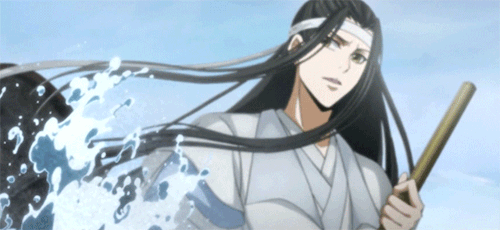
Why yes, Lan WangJi is the exact opposite of his beloved Wei WuXian. He’s another one that seems pretty obvious to me.
ISTJ personalities are no-nonsense... ISTJs have little tolerance for indecisiveness, but lose patience even more quickly if their chosen course is challenged with impractical theories, especially if they ignore key details...
ISTJ personalities adhere to established rules and guidelines regardless of cost, reporting their own mistakes and telling the truth even when the consequences for doing so could be disastrous. To ISTJs, honesty is far more important than emotional considerations, and their blunt approach leaves others with the false impression that ISTJs are cold, or even robotic. People with this type may struggle to express emotion or affection outwardly, but the suggestion that they don’t feel, or worse have no personality at all, is deeply hurtful.
Jiang Cheng-->ISTJ “The Logistician”
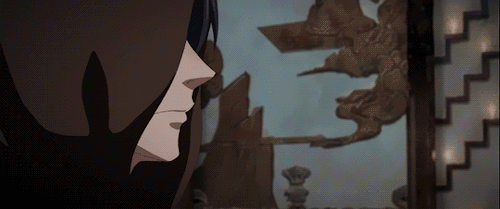
Yes, the same type as Lan WangJi, just a tad more bitter. Personality tests, even if two people seem to fit a type extremely well, can’t define someone, because people are just so infinitely more complex. The part about being taken advantage of reminds me here of how Jin GuangYao points out that people took advantage of Jiang Cheng’s need to prove himself to drive a wedge between him and Wei WuXian.
ISTJs’ dedication is an excellent quality, allowing them to accomplish much, but it is also a core weakness that less scrupulous individuals take advantage of. ISTJs seek stability and security, considering it their duty to maintain a smooth operation, and they may find that their coworkers and significant others shift their responsibilities onto them, knowing that they will always take up the slack. ISTJs tend to keep their opinions to themselves and let the facts do the talking, but it can be a long time before observable evidence tells the whole story.
Lan XiChen-->ENFJ “The Protagonist”

Sadly, this description is pretty accurate to Lan XiChen’s strengths and also his flaws--in particular in terms of his relationship with Jin GuangYao.
ENFJs radiate authenticity, concern and altruism, unafraid to stand up and speak when they feel something needs to be said. They find it natural and easy to communicate with others, especially in person, and their Intuitive (N) trait helps people with the ENFJ personality type to reach every mind, be it through facts and logic or raw emotion. ENFJs easily see people’s motivations and seemingly disconnected events, and are able to bring these ideas together and communicate them as a common goal with an eloquence that is nothing short of mesmerizing.
The interest ENFJs have in others is genuine, almost to a fault – when they believe in someone, they can become too involved in the other person’s problems, place too much trust in them.
Jin GuangYao-->ESFJ (?) “The Consul”
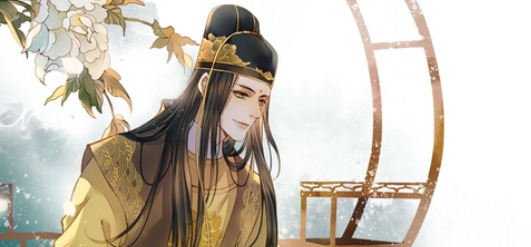
This one I’m less certain of--FJ seems certain to me, but I/E and N/S is a bit debatable. I think he best meets the description of “the Consul” though.
ESFJs are more concerned with fashion and their appearance, their social status and the standings of other people... ESFJs love to be of service, enjoying any role that allows them to participate in a meaningful way, so long as they know that they are valued and appreciated. Coming to terms with their sensitivity is ESFJs’ biggest challenge – people are going to disagree and they’re going to criticize, and while it hurts, it’s just a part of life.
Nie MingJue-->ESTJ “The Executive”
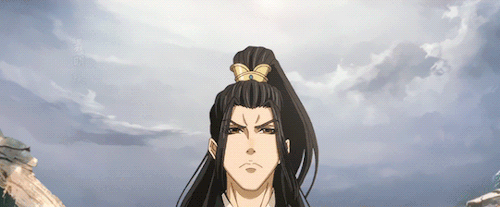
Less certain of E or I than for the other three, but the way he failed to overcome the challenge of how not everyone processes the same way seems very ESTJ to me.
ESTJs are representatives of tradition and order, utilizing their understanding of what is right, wrong and socially acceptable to bring families and communities together. Embracing the values of honesty, dedication and dignity, people with the ESTJ personality type are valued for their clear advice and guidance, and they happily lead the way on difficult paths.
ESTJs are aware of their surroundings and live in a world of clear, verifiable facts – the surety of their knowledge means that even against heavy resistance, they stick to their principles and push an unclouded vision of what is and is not acceptable... they expect their reliability and work ethic to be reciprocated – people with this personality type meet their promises, and if partners or subordinates jeopardize them through incompetence or laziness, or worse still, dishonesty, they do not hesitate to show their wrath...
The main challenge for ESTJs is to recognize that not everyone follows the same path or contributes in the same way.
Nie HuaiSang-->ISFP “The Adventurer”

Interesting name for a timid HuaiSang, but I really do think he is an ISFP. He is notably one of the few Nie Sect leaders who doesn’t seem at risk of dying from a qi deviation, and hence his less brutish way of ruling might actually, in the long run, be good for his sect. (NMJ would be proud... maybe.)
ISFP personality types are true artists, but not necessarily in the typical sense where they’re out painting happy little trees. Often enough though, they are perfectly capable of this. Rather, it’s that they use aesthetics, design and even their choices and actions to push the limits of social convention...
If these goals and principles are noble, ISFPs can act with amazing charity and selflessness – but it can also happen that people with the ISFP personality type establish a more self-centered identity, acting with selfishness, manipulation and egoism.
Wen Qing-->ENTJ “The Commander”
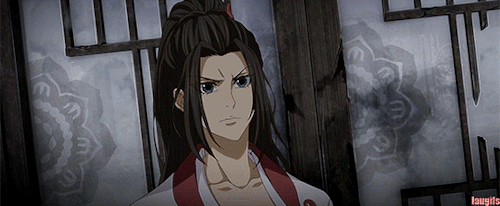
Another one I feel fairly confident in. Wen Qing is a boss queen who gives birth to one of the series’ most iconic lines: “thank you, and I’m sorry.” She’s able to win the respect of Wen RouHan and even some people who hate the Wens, and thinks outside the box, theorizing on core transfer but hesitant to actually try it when she isn’t fully confident.
ENTJs are natural-born leaders. People with this personality type embody the gifts of charisma and confidence, and project authority in a way that draws crowds together behind a common goal. But unlike their Feeling (F) counterpart, ENTJs are characterized by an often ruthless level of rationality, using their drive, determination and sharp minds to achieve whatever end they’ve set for themselves.
Wen Ning-->INFP “The Mediator”
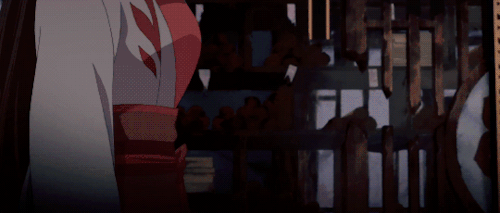
I was torn between S and N, but I went with INFP because he is more focused on thinking about possibilities--in fact his arc is about learning to be confident in his own possibilities and to explore them.
INFP personalities are true idealists, always looking for the hint of good in even the worst of people and events, searching for ways to make things better. While they may be perceived as calm, reserved, or even shy, INFPs have an inner flame and passion that can truly shine.
Jin ZiXuan--> ESTP, “The Entrepreneur”
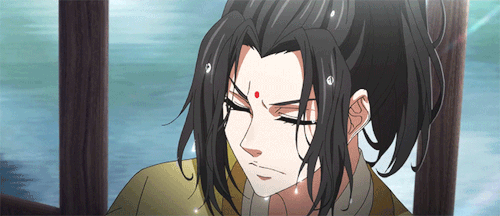
Does he have enough of a personality for me to really analyze him? Maybe not but I like him a lot. He is motivated by what seems like pride at the beginning, but we later realize he cares deeply about the people around him and genuinely cared for Wei WuXian because his wife did.
Inspiring, convincing and colorful, they are natural group leaders, pulling everyone along the path less traveled, bringing life and excitement everywhere they go. Putting these qualities to a constructive and rewarding end is Entrepreneurs’ true challenge.
Jiang YanLi-->INFP “The Mediator”
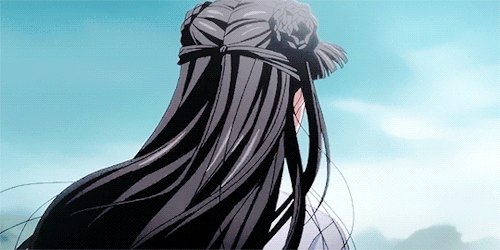
Shijie was indeed the mediator between her two brothers, and it’s her legacy of love and kindness, of wanting Wei WuXian to live even at the expense of her own life no matter what he’d done, that makes a huge difference.
Luckily, like the flowers in spring, INFP’s affection, creativity, altruism and idealism will always come back, rewarding them and those they love perhaps not with logic and utility, but with a world view that inspires compassion, kindness and beauty wherever they go.
Jin Ling-->ESTP, “The Entrepreneur”
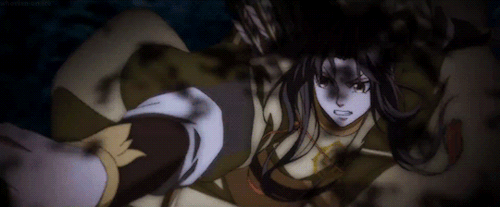
Jin Ling is the hardest one to pin down and I’m mad because he’s one of my favorites. He is highly emotional, but I think he’s an ESTP like his dad.
Entrepreneurs keep their conversation energetic, with a good dose of intelligence, but they like to talk about what is – or better yet, to just go out and do it. Entrepreneurs leap before they look, fixing their mistakes as they go, rather than sitting idle, preparing contingencies and escape clauses.
Lan SiZhui-->INFJ “The Advocate”

My type.
INFJs indeed share a unique combination of traits: though soft-spoken, they have very strong opinions and will fight tirelessly for an idea they believe in. They are decisive and strong-willed, but will rarely use that energy for personal gain – INFJs will act with creativity, imagination, conviction and sensitivity not to create advantage, but to create balance.
Lan JingYi-->ESFP “The Entertainer”
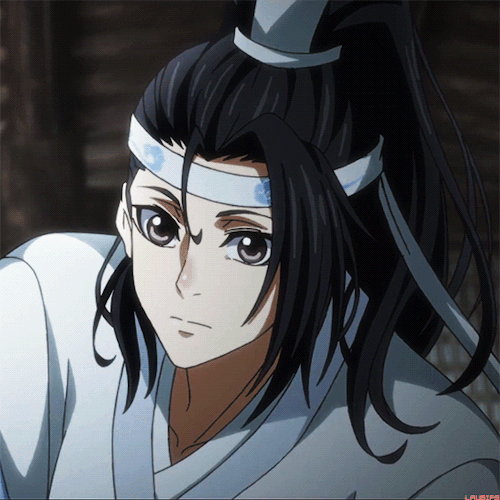
He’s pretty easy to figure out. I constantly wonder how he fares in the Gusu Lan Sect.
...they love putting on a show for their friends too, chatting with a unique and earthy wit, soaking up attention and making every outing feel a bit like a party. Utterly social, ESFPs enjoy the simplest things, and there’s no greater joy for them than just having fun with a good group of friends.
Xue Yang-->ESTP “The Entrepreneur”
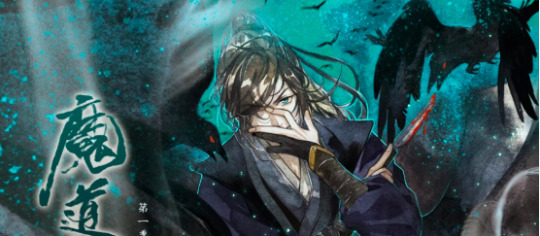
ESTPs are the likeliest personality type to make a lifestyle of risky behavior. They live in the moment and dive into the action – they are the eye of the storm. People with the ESTP personality type enjoy drama, passion, and pleasure, not for emotional thrills, but because it’s so stimulating to their logical minds. They are forced to make critical decisions based on factual, immediate reality in a process of rapid-fire rational stimulus response.
A-Qing-->ESTP “The Entrepreneur”

Yes, I think A-Qing is the same type as Xue Yang, which doesn’t surprise me because they are actually extremely blatant foils in the story. It’s funny the description notes how observant ESTPs tend to be, because that’s something A-Qing absolutely is, noticing Xue Yang’s minuscule changes in expression and keeping her from trusting him, and Xue Yang is also incredibly observant of her words to realize she might just not be blind after all.
With perhaps the most perceptive, unfiltered view of any type, ESTPs have a unique skill in noticing small changes. Whether a shift in facial expression, a new clothing style, or a broken habit, people with this personality type pick up on hidden thoughts and motives where most types would be lucky to pick up anything specific at all. ESTPs use these observations immediately, calling out the change and asking questions, often with little regard for sensitivity. ESTPs should remember that not everyone wants their secrets and decisions broadcast.
Xiao XingChen-->ISFJ “The Defender”
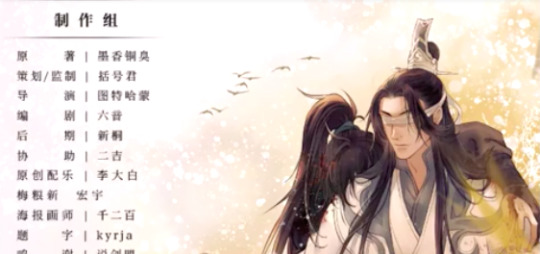
The following description really reminds me of XXC especially after he hears the story about Xue Yang’s love of candy as a child, and every single day thereafter buys him and A-Qing a candy.
ISFJs take their responsibilities personally, consistently going above and beyond, doing everything they can to exceed expectations and delight others, at work and at home... Naturally social, an odd quality for Introverts, ISFJs utilize excellent memories not to retain data and trivia, but to remember people, and details about their lives. When it comes to gift-giving, ISFJs have no equal, using their imagination and natural sensitivity to express their generosity in ways that touch the hearts of their recipients
Song Lan-->INTJ “The Architect”
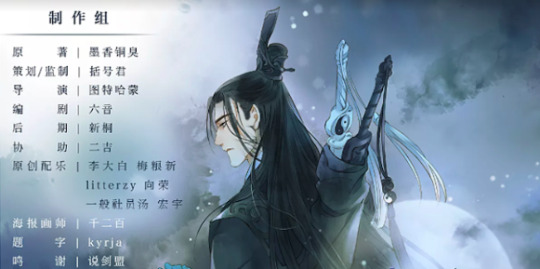
There’s not as much to go on for Song Lan, but what we do have seems to suggest INTJ to me, particularly in how someone who would spend years looking for a friend would refuse to consider that Xue Yang might have changed at all.
INTJs are simultaneously the most starry-eyed idealists and the bitterest of cynics, a seemingly impossible conflict.
Yu ZiYuan-->ESTJ “The Executive”
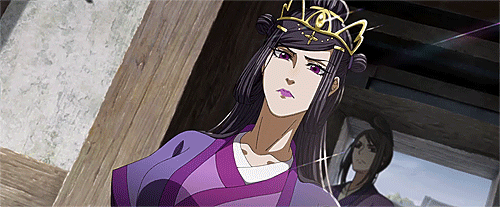
Welp. The Purple Spider is definitely an Executive.
ESTJs are representatives of tradition and order, utilizing their understanding of what is right, wrong and socially acceptable to bring families and communities together. Embracing the values of honesty, dedication and dignity, people with the ESTJ personality type are valued for their clear advice and guidance, and they happily lead the way on difficult paths.
126 notes
·
View notes
Text
The 27 subtype personalities
Source: Here. [It’s a good article, read it.]
TYPE ONE
Self-Preservation Ones focus on making everything they do more perfect. They are the true perfectionists of the Enneagram. They see themselves as highly flawed and try to improve themselves and make every detail of what they do right. These people are the most anxious and worried Ones, but also the most friendly and warm.
Social Ones focus on doing things perfectly in a larger sense—knowing the right way to do things—and modeling how to do things right for others. An intellectual type, these Ones have a teacher mentality; they see their role as helping others see what they already know–how to be perfect.
One-to-One Ones focus on making other people—and society as a whole—more perfect. More reformers than perfectionists, they tend to display more anger and zeal than the other Ones. These Ones focus less attention on perfecting their own behavior and pay more attention to whether or not others are doing things right.
TYPE TWO
Self-Preservation Twos seek to gain approval through being charming and youthful. Less oriented to giving and more burdened by helping, they charm others into liking them as an unconscious effort to get people to take care of them. More self-indulgent, playful, and irresponsible than the other two Twos, they are more fearful and ambivalent about connecting with others.
Social Twos seek to gain approval from others through being powerful, competent, and influential. More a powerful, leader type of person, they take charge of things and play to a larger audience as a way of proving their value.
One-to-One Twos gain approval through being generous and attractive. They emphasize their personal appeal and promises of support to make others like them and do things for them—this is a more emotional, passionate Two who seduces specific individuals.
TYPE THREE
Self-Preservation Threes work hard to assure material security for themselves and the people around them. Oriented to being good (as well as looking good) according to social consensus, they want to appear successful, but they don’t want to brag or self-promote in an obvious way (because that wouldn’t be good). SP Threes are self-sufficient, extremely hard-working, results-oriented, and modest.
Social Threes work hard to look flawless in the eyes of others. Oriented to competing to win and attaining the material and status symbols of success, they focus on getting things done and always having the right image for every social context. The most aggressive, competitive, well-known Three, Social Threes enjoy being onstage and know how to climb the social ladder.
One-to-One Threes focus on creating an image that is appealing to others and supporting and pleasing the people around them—especially partners, co-workers, and family members. They have a relationship or team mentality and work very hard to support the success of others (rather than their own).
TYPE FOUR
Self-Preservation Fours are stoic, strong, and long-suffering—emotionally sensitive on the inside, they often don’t communicate their darker feelings to others. While they feel things deeply, and may feel sad inside, they often have a sunny, upbeat exterior, as they often received the message early on that their caretakers couldn’t handle their pain or darker emotions. They may feel anxious inside, but they tough things out and have a high tolerance for frustration.
Social Fours suffer. They focus on their own emotions and the underlying emotional tone of whatever situation they are in. They compare themselves to others and tend to see themselves as less worthy or lacking in some way. They are more emotionally sensitive than most other types, they wear their feelings on their sleeve, and connect to themselves through the authenticity of their emotional truth.
One-to-One Fours are more assertive and competitive. These Fours are not afraid to ask for what they need or complain when they don’t get it. They can appear aggressive to others, and they strive to be the best.
TYPE FIVE
Self-Preservation Fives focus mainly on maintaining good boundaries with others. Friendly and warm, SP Fives like to have a private space they can withdraw to if they want to be alone. They focus on minimizing needs, finding refuge, and having all they need within their place of safety.
Social Fives enjoy becoming experts in the specific subject areas that interest them. They like acquiring knowledge and connecting with others with common intellectual interests and causes. They may be more connected to people they connect with through a social cause or area of expertise than the people in close proximity in everyday life.
One-to-One Fives have more a stronger need to connect with other individuals–under the right conditions. These Fives are more in touch with their emotions inside, though they may not show it on the outside. They have a romantic streak that they may express through some form of artistic expression.
TYPE SIX
Self-Preservation Sixes are the more actively fearful (the phobic or “flight”) Six. They doubt and question things in an effort to find a sense of certainty and safety (that often eludes them). They seek to be warm and friendly to attract allies as a form of outside support or protection in a dangerous world.
Social Sixes are more intellectual types who find a sense of safety in following the guidelines of a system or way of thinking to feel protected by a kind of impersonal outside authority. They tend to be logical, rational, and concerned with reference points and benchmarks. They are more sure of things than the SP Six, who expresses more doubt and ambiguity, and can even become “true believers.”
One-to-One Sixes cope with underlying fear (that they may not be aware of) by appearing strong and intimidating to others. Of the “fight” or “flight” reactions to fear, they choose “fight,” and tend to be risk-takers, contrarians, or rebels. They have an inner program that tells them that the best defense is a good offense.
TYPE SEVEN
Self-Preservation Sevens are very practical. Good at getting what they want, they readily recognize opportunities and know how to make things happen, whether through pragmatic planning or a network of allies. They tend to have a talkative, amiable, hedonistic style.
Social Sevens want to avoid being seen as excessively opportunistic and self-interested, so they focus on sacrificing their immediate desires to pursue an ideal of being of service to others. They take responsibility for the group or family and want to be seen as good by easing others’ suffering.
One-to-One Sevens are idealistic dreamers, who have a need to imagine something better than what might be true in their everyday reality. Extremely enthusiastic and optimistic, they have a passion for seeing things as they could be or as they imagine them to be (as opposed to how they really are).
TYPE EIGHT
Self-Preservation Eights focus on getting what they need to survive in a direct, no-nonsense way. They have a low tolerance for frustration and a strong desire for the timely satisfaction of their material needs. They know how to do business and get things done and don’t need to talk about it very much.
Social Eights focus on protecting and mentoring others they are connected to or anyone they view as needing their support. While they can be rebellious and assertive, they appear less aggressive as they have a softer side when it comes to taking care of others.
One-to-One Eights have a strong rebellious tendency and like to be the center of things. More provocative and passionate than the other Eights, they like to have power over people and situations.
TYPE NINE
Self-Preservation Nines focus on finding comfort in familiar routines and the satisfaction of their physical needs. Whether through eating, sleeping, reading, or doing crossword puzzles, SP Nines tend to lose themselves in whatever activities help them feel grounded and comfortable.
Social Nines focus on working hard to support the groups they are a part of as a way of seeking a sense of comfort in belonging. Congenial people who like to feel a part of things, Social Nines tend to be light-hearted and fun, and expend a lot of effort in doing what it takes to be admitted to and supportive of the group or community.
One-to-One Nines tend to merge with the agenda and attitudes of important others in their lives. Sweet, gentle, and less assertive than other types, this relationship-oriented Nine may take on the feelings and opinions of the people they are close to without realizing it.
#enneagram#enneagram 1#enneagram 2#enneagram 3#enneagram 4#enneagram 5#enneagram 6#enneagram 7#enneagram 8#enneagram 9
293 notes
·
View notes
Text
the cigarette has burned down to a miserable little stub by the time his phone vibrates once again. ren doesn't look right away — he needs to mentally PREPARE himself first. if this turns out to be cyno spouting some nonsensical pun or dottore up to his usual antics ( making everyone's day collectively WORSE with his mere existence ) he thinks what feeble tether of rationality he still maintains might snap. perhaps there is some part of him that selfishly hopes the problem will simply go away if he doesn't look at it. that he can just delete the message — and with it, all of these feelings causing him to SUFFER. it's so disgustingly idealistic, he can't bring himself to believe it — even in the form of an idle fantasy.
in any case, ren thinks this has all DRAGGED ON long enough. heartache is a new experience — but even then, it's managed to overstay its welcome. whatever kazuha ultimately chooses to do, he will accept ... and if that means ending the relationship, so be it. they were never COMPATIBLE — hell, if that turns out to be the truth, at least they can say that they tried. he doesn't want to force kazuha into something mutually unfulfilling. he's a good person; he deserves to be happy — and perhaps that in itself is what this whole love thing is about. destroying something he wants for the sake of another's well-being.
yet as he flicks his cigarette to the ground below, a skeptical little voice in the back of his mind thinks that still sounds an awful lot like martyrdom.
𝐖𝐀𝐍𝐃𝐄𝐑𝐄𝐑: okay.

he can't help but appreciate the irony of the situation. that they would find themselves in the same position — facing one another down, tension in the living room thick enough to be cut with a KNIFE. it's all so eerily familiar, down to the streamer's disheveled appearance. ( though he thinks, at least this time he's intentionally, tastefully messy. ) he observes kazuha in silence — undue caution in indigo gaze, like the eyes of a particularly wary street cat. he tries to muster up some kind of feeling. hurt. dread. anger. yet what feeble dregs of emotion the streamer does manage to stir are quick to escape him — smoke slipping through the spaces between too-clumsy fingers. exhaling a slow breath, ren tries to keep his conversation with niwa in mind. it had been so easy to talk to him then. lay his ugliness bare, work through the tangled mess inside his own head. why couldn't it be that way with kazuha?
❝ okay. ❞ ren ( finally ) says aloud. a deliberate echo of the message sent over text. let's get this over with.

living room brought back to its original state. CHECK! dishes done. CHECK! freshening himself up and looking some sort of presentable. CHECK?
kazuha brushed his hair with his fingers and put his hair up in a high ponytail as he went over the mental checklist again and again.

he sat down on the couch and checked his phone.. messages from.. niwa, chongyun and others were asking about his well-being which was surprising as normally he was the one that would check up on people. a sad smile spread across his face, here they are.. again. in the same living room, them having a fight again.
was he what ren would need? maybe they weren't meant to be boyfriends?
kazuha felt his eyes sting and tears slowly falling down his cheeks. everything was going wrong.. not even his past relationships were this bad.. kazuha was craving affection specifically ren's affection, his smiles, and the little pouting he would do when he is bratty about something. he just wanted to hold him, sleep together and do all kinds of couple things.. not this.. not this deep-wrenching painful feeling where his heart was aching in pain. a heartbreak.
he opened up ren's message and wrote a quick message that he was ready to talk.

. . . . .
and now he waits.. just like before.

#momijiba#𝟎𝟏𝟕 : 𝘮𝘢𝘬𝘦 𝘵𝘩𝘦 𝘤𝘢𝘧𝘧𝘦𝘪𝘯𝘦 𝘣𝘦 𝘺𝘰𝘶𝘳 𝘸𝘦𝘢𝘱𝘰𝘯𝘳𝘺. ◟ v. modern .◝#( i am honored to be your formatting guinea pig DJKSDK )#( it looks very nice!! i love all the warm tones!! )
15 notes
·
View notes
Text
The Batbros Meyers Briggs Personality Types
Dick: ESFP
ESFPs get caught up in the excitement of the moment, and want everyone else to feel that way, too. No other personality type is as generous with their time and energy as ESFPs when it comes to encouraging others, and no other personality type does it with such irresistible style. Utterly social, ESFPs enjoy the simplest things, and there’s no greater joy for them than just having fun with a good group of friends. Though it may not always seem like it, ESFPs know that it’s not all about them – they are observant, and very sensitive to others’ emotions. People with this personality type are often the first to help someone talk out a challenging problem, happily providing emotional support and practical advice.
Strengths: Bold, Original, Aesthetics and Showmanship, Practical, Observant, Excellent People Skills
Weaknesses: Sensitive, Conflict-Averse, Easily Bored, Poor Long-Term Planners, Unfocused
Conclusion: Few personality types are as charming and attractive as ESFPs. Known for their ability to improvise and focus completely on the present, ESFPs are great at finding exciting new things to explore and experience. ESFPs’ energy, enthusiasm and down-to-earth attitude are invaluable in many areas, including their own personal growth.
Jason: INFJ
INFJs tend to see helping others as their purpose in life, but while people with this personality type can be found engaging rescue efforts and doing charity work, their real passion is to get to the heart of the issue so that people need not be rescued at all. To INFJs, the world is a place full of inequity – but it doesn’t have to be. No other personality type is better suited to create a movement to right a wrong, no matter how big or small. INFJs just need to remember that while they’re busy taking care of the world, they need to take care of themselves, too.
Strengths: Creative, Insightful, Inspiring and Convincing, Decisive, Determined and Passionate, Altruistic
Weaknesses: Sensitive, Extremely Private, Perfectionistic, Always Need to Have a Cause, Can Burn Out Easily
Conclusion: Few personality types are as sensitive and mysterious as INFJs. Their imagination and empathy make them someone who not only cherishes their integrity and deeply held principles but, unlike many other idealistic types, is also capable of turning those ideals into plans, and executing them. Yet, as an INFJ, they are likely to be easily tripped up in areas where idealism and determination are more of a liability than an asset. Whether it is navigating interpersonal conflicts, confronting unpleasant facts, pursuing self-realization, or finding a career path that aligns well with their intricate inner core, INFJs may face numerous challenges that at times can even make them question who they really are.
Tim: INTP
INTPs pride themselves on their inventiveness and creativity, their unique perspective and vigorous intellect. They love patterns, and spotting discrepancies between statements could almost be described as a hobby, making it a bad idea to lie to an INTP. INTPs are known for their brilliant theories and unrelenting logic – in fact, they are considered the most logically precise of all the personality types. Overcoming self-doubt stands as the greatest challenge INTPs are likely to face, but the intellectual gifts – big and small – bestowed on the world when they do makes it worth the fight.
Strengths: Great Analysts and Abstract Thinkers, Imaginative and Original, Open-Minded, Enthusiastic, Objective, Honest and Straightforward
Weaknesses: Very Private/Withdrawn, Insensitive, Absent-minded, Condescending, Loathes Rules/Guidelines, Second-Guess Themselves
Conclusion: INTPs’ intelligence and logical reasoning skills are a force to be reckoned with. Be it a minor debate or a life-changing decision, INTPs will find it easy to entertain multiple ideas and keep a cool head. This allows INTPs to overcome many challenging obstacles – yet they can be easily tripped up in areas where careful and rational thinking is more of a liability than an asset.
Damian: ISTJ
People with the ISTJ personality type enjoy taking responsibility for their actions, and take pride in the work they do – when working towards a goal, ISTJs hold back none of their time and energy completing each relevant task with accuracy and patience. ISTJs don’t make many assumptions, preferring instead to analyze their surroundings, check their facts and arrive at practical courses of action. ISTJ personalities are no-nonsense, and when they’ve made a decision, they will relay the facts necessary to achieve their goal, expecting others to grasp the situation immediately and take action. ISTJs have little tolerance for indecisiveness, but lose patience even more quickly if their chosen course is challenged with impractical theories, especially if they ignore key details – if challenges becomes time-consuming debates, ISTJs can become noticeably angry as deadlines tick nearer.
Strengths: Honest and Direct, Strong-willed, and Dutiful, Very Responsible, Calm and Practical, Create and Enforce Order, Jack-of-all-trades
Weaknesses: Stubborn, Insensitive, Always by the Book, Judgmental, Often Unreasonably Blame Themselves
Conclusion: Few personality types are as practical and dedicated as ISTJs. Known for their reliability and hard work, ISTJs are good at creating and maintaining a secure and stable environment for themselves and their loved ones. ISTJs’ dedication is invaluable in many areas, including their own personal growth. Yet ISTJs can be easily tripped up in areas where their practical and methodical approach are more of a liability than an asset.
Of course, you’re welcome to disagree with me on any of these. This is just how I see them.
Source: https://www.16personalities.com/personality-types
58 notes
·
View notes
Text
Enneagram Type 1: The Reformer
The Principled, Purposeful, Self-Controlled, Perfectionistic Person
Healthy. Healthy Ones are conscientious with strong personal convictions: they have an intense sense of right and wrong, as well as a personal code of moral values. They wish to be rational, reasonable, self-disciplined, and moderate in all things. Highly ethical: truth and justice are primary values. Integrity and rectitude make them outstanding moral teachers, personal examples, and witnesses to the truth and other values. Feel they have a mission in life that gives them a sense of purpose. Use their time, energy, and passion to fulfill what they believe is their calling. Articulate communicators, also keep composure under pressure. Extremely principled, always desiring to be impartial, fair, and objective and willing to make sacrifices or delay gratification for the greater good. Embody the Apollonian ideal of cultivating virtue, achieving excellence and balance. At their best: Become extraordinarily wise and humane, with superb discernment. By accepting what is, Ones become transcendentally realistic, knowing the best action to take in each moment. Have long-range priorities in view, giving them a transcendental perspective. Profound-acceptance of human foibles in themselves and others gives Ones the ability to be inspiring and uplifting to others: the truth will be heard. They give wise counsel, and have nobility of vision and purpose. Life-affirming, hopeful, and kind. Ones balance personal impeccability with a great generosity of spirit.
Average. Average Ones become dissatisfied with reality, and begin to feel a noblesse oblige, that it is up to them, personally, to improve everything: becoming crusaders, advocates, critics, educators, and high-minded idealists. Promote causes. Concerned with working toward an ideal to make things the way they “should” be. Ones feel the need to explain, remedy, debate, point out errors, while striving to maintain standards. Increasingly feel that they have certainty: convinced that their views are correct. The more Ones express their views and standards, the more they become afraid of making a mistake: everything must be consistent with their ideals. Become orderly, methodical, well organized, neat, logical, and detailed, although also more impersonal, no-nonsense, and emotionally constricted: Ones rigidly hold their feelings and impulses in check, resulting in a tense, repressed quality. Bouts of depression begin to enter the picture. Often workaholics — need to feel that they are not “slacking off.” Can be puritanical, anal (compulsive), fastidious, meticulous, punctual, and pedantic. Thinking is hierarchical and deductive, separating everything into dichotomies of black or white, good or bad, right or wrong. Highly opinionated about everything — correcting people and badgering them to do the right thing as they see it. Highly critical of self and others: judgmental, nitpicking, and fault-finding. Ones become perfectionistic and impatient, never satisfied unless something is done according to their prescriptions. Feel resentful that others do not share their standards. Others are messing up their good work. Moralizing, scolding, and indignantly angry toward anyone (or anything) they judge is wrong, in error, messy, or out of place.
Unhealthy. Unhealthy Ones can be extremely dogmatic, closedminded, self-righteous, intolerant, and inflexible. Everyone else is lazy or corrupt. They alone know “the truth” and relentlessly make pronouncements from narrow, forbidding absolutes. Very severe in their judgments; for them to be proved right, others must be proved wrong. Ones use sophistry and rationalizations to maintain their “logical” position; Behind the scenes, however, they are bitter and depressed. Compulsive acting out of “forbidden pleasures” alternates with masochistic periods of guilt and repentance. Become obsessed about the wrongdoing of others, although, ironically, they may do the same thing or worse themselves. Ones’ own instinctual drives rebel against their punitive superegos, causing them to do the opposite of what they preach while rationalizing their own contradictory actions or attitudes. Become condemnatory toward others, punitive and cruel to rid themselves of “wrongdoers.” May also believe that some part of themselves is responsible for their suffering, resulting in self-punishment or self’ mutilation. Severe depressions, nervous breakdowns, and suicide attempts are likely.
Triad Issues. In the Instinctive Center, although Ones’ instinctual impulses tend to be repressed or constricted, resulting in a reliance on having strong positions and convictions to compensate. Ability to act spontaneously without guilt or censure from the Inner Critic is undeveloped. Underlying Ones’ actions is an attempt to sublimate their instinctive urges in ways more acceptable to society and to their superegos. Issues with aggression (anger, resentment, and rage) over the intractability of the self and others, as well as repression (of their instincts, sensual gratifications, and other urges) are important elements.
Direction of Disintegration. Average Ones are nothing if not self-controlled and task-driven. Like Threes, they value efficiency and try to get their work done before addressing their own emotional issues. However, stress can build to the point where Ones are no longer able to keep their feelings in abeyance, and at such times they take on some of the attitudes and behaviors of average Fours. Ones at Four start to feel alienated and misunderstood — they are working very hard and no one seems to care about their efforts or their ideals. Self-pity may lead them to indulge themselves like average Fours, often in ways that are in slight contradiction to their expressed values. The typically logical, no-nonsense Ones may also become moody and temperamental, withdrawing from others to sulk or in hopes that someone will see their distress and help them out. Unfortunately, they are unlikely to ask for help directly.
Unhealthy Ones are so driven by their harsh superego that they can seldom escape its withering criticism. Nothing they do seems good enough. They simply cannot seem to measure up. Inevitably, the stress leads them to unhealthy Four behaviors. Ones are filled with self-hatred and hatred of the world for putting them in this situation. They become less functional and feel that they may need extra compensations for their suffering — usually resulting in acting out in ways that bring more harm to them. Eventually, unhealthy Ones may do something so contradictory that their superego pounces on them, with relentless self-criticism and profound feelings of guilt and shame. When Ones deteriorate to unhealthy Four, they regress to a state of severe depression, self-reproach, and self-destructiveness, with suicidal thoughts and feelings. At the least, a nervous breakdown or a severe depression is likely.
Direction of Integration. When healthy Ones go to Seven, they accept reality with its necessary imperfections and become more relaxed and productive. They no longer feel compelled to strive constantly to make everything perfect, nor do they feel that they must save the world single-handedly. Life becomes less stressful and grim; they can allow things to unfold in their own way. They be. come more joyous, spontaneous, and optimistic. The move to Seven also enables Ones to communicate with others more effectively — their lighter touch helps people to take in the often serious nature of their concerns. They become more curious and more interested in views that are different from their own. Most important, however, integrating Ones increasingly are able to recognize ' the perfection that is already here. They can stop, breathe, and savor the miracle of their life.
Security Point. Ones can also act out the average behaviors of type Seven, but most often with trusted friends and intimates. In familiar surroundings, Ones like to let their hair down and can display a rowdier, more vivacious side of themselves. In the brief periods of relaxation between missions, they can also get scattered like Sevens, not knowing how best to spend their leisure time or what to order on the menu, trying to cram many experiences into a limited time. Ones can be extremely funny, and actually like to shock people (and to defy their own image) when they feel that it is safe to do so.
Childhood Pattern. Disconnected with the protective figure, who is usually the father or a father figure. Ones felt that the qualities of guidance, structure, and support in their early childhood were inadequate in some way: either too strict, or too arbitrary, or too vague, or simply lacking. Whatever the specifics, young Ones felt profoundly frustrated with the quality of guidance and discipline they received. Thus they felt that they had. to come up with their own set of guidelines and rules, and these are usually stricter than the ones given them by their families. In effect, young Ones were saying, “I’m going to be so good that no one will ever find me at fault. I will never be in trouble because my standards are higher than anyone else’s. I will punish myself before anyone else punishes me.” Of course, this structure is the One’s own superego, and adult Ones continue to depend on it to determine what and what not to do.
Basic Fear. Of being bad, imbalanced, defective, or corrupt.
Basic Desire. To be good, to have integrity.
Secondary Motivations. Ones want to treat others fairly, to act in accordance with their consciences, to strive for their ideals, to improve the world, to prevent mistakes, to be beyond criticism, to justify their position, to be absolutely guiltless, to reproach others for not living up to their ideals.
In Search of: Integrity and improvement. Ones want to make a contribution to the general welfare, to make the world a better place — thereby earning their place in it. Sublimate their own desires and drives. Work hard, having a vision of excellence and what it takes to make “a better world.” They are practical idealists. To the degree that Ones have been emotionally wounded by childhood experiences, however, their superegos will be relentless, making it difficult for Ones to take pleasure in whatever good or improvements they actually achieve.
Healthy Sense of Self. “I am a reasonable, objective person.”
Hidden Complaint. “I am right most of the time, and it would be a better world if people listened to what I tell them.”
Key Defense Mechanisms. Repression, reaction formation, displacement.
Characteristic Temptation. An extreme sense of personal moral obligation. Average Ones begin to think that everything falls on them personally to improve. Average Ones feel that if they do not improve something, no one else will. Or, even if others are willing, they will not do as good and thorough a job as the One will. Ones therefore become increasingly fixated on organizing the environment, correcting and perfecting everything, and on criticizing anyone or anything that does not conform to the ideal as they define it.
Saving Grace. Despite how judgmental and perfectionistic average Ones can be, they may still be objective and sensible enough to prevent themselves from deteriorating into closed-minded intolerance or self-righteous obsessions. Their healthy capacity for reason and moderation can be the means by which they return to a healthier state.
Structural Patterns. The keynote is objectivity. Ones attempt to be objective, rational, and fair-minded and to be unmoved and uninfluenced by any personal desire or private passion that would interfere with their obligation to meet their own standards. Hence, there is a division in their psyches between the objective and the subjective, between conscience and desire, between what they would sometimes like to do and what they feel they must do. In the outside world, Ones strive for a higher, more perfect state, attempting to improve everything, including the self (through education, discipline, hard work, high-mindedness). The overall pattern, therefore, is one of constant tension. between the objective values they seek to bring to the world and their personal impulses (sexual, aggressive, and personal desires) that tend to erupt if they are not kept under the check of repression and constant self-control.
Cognitive Error.To identify with their Inner Critic (superego) as the judge and determinant of what it means to be good and in balance. This orientation automatically leads to being judgmental and hence to a sense of separation, dualism, reproach, and blame and, ironically, to a loss of integrity and personal balance.
Inevitable Consequences. Because Ones are rational and logical, of all the personality types, they are most concerned about the consequences of their actions, and it would seem that a rational assessment of their situation would prevent them from falling into fixation. But of course, the ego is never entirely objective, and the very rules and standards by which Ones orient themselves can be the source of their trouble. If Ones continue to believe in their superego's dictates as the sole arbiter of truth and right action, they will gradually become caught in the grip of their Basic Fear (of being bad, defective, or corrupt) while undermining their Basic Desire (to have, integrity). Integrity is a function of wholeness. To have integrity is to be without inner division or conflict. The superego’s judgments, on the other hand, always create division and conflict within the self. Some part of us is judging some other part of us with the result that we are divided against ourselves. As long as Ones depend on the superego’s evaluation of themselves and of reality, they will not find the integrity and wisdom they seek, and will remain blind to the perfection of each moment. When they learn to recognize the action of their own superego and its limitations, the inherent wisdom within them is freed to act in the world.
112 notes
·
View notes
Text
Here’s Who Probably Has A Crush On You Based On Your Myers-Briggs Personality Type
ENFP
Who’s crushing on you: The quiet, nerdy one.
They’re focused, composed and together. You’re scattered, enthusiastic and charming. At a first glance it might not be a match made in heaven but something about your quick wit and fearless charisma keeps drawing them back to you. Try giving this combination a shot – you may be surprised to find that their intensity and firmness balances you out in all the right ways.
INTJ
Who’s crushing on you: The emotionally intense one.
They’re introspective, analytical and artistic. You’re intense, intellectual and emotionally guarded. You may see them as overly whimsical but they see you as a challenge. This emotionally intelligent type wants to break down your walls and understand what’s beneath your cool, rational exterior. Though the thought of this may send alarm bells screeching through your mind, don’t be so quick to write them off. They may prove themselves imperative to helping you unlock parts of yourself you never knew existed –and you may just grow immeasurably from it.
ENTJ
Who’s crushing on you: The scatterbrained genius.
They’re analytical, entrepreneurial and just a little out of touch with the world that surrounds them. You’re practical, put-together and high achieving. Though you never pictured yourself with someone so scattered, this mismatched prodigy may just be the yin to your yang. They’re enticed by your no-nonsense, put-together attitude. And if you gave them the time of day, you’d quickly learn that they have the brains to fuel it all. Together you could be the perfect team – but you’re going to have to make the first move. They keep forgetting to.
ENTP
Who’s crushing on you: The softhearted brainiac.
They’re sharp, put-together and secretly harbouring a bleeding heart. You’re dynamic, quick-witted and tirelessly analytical. You may not have noticed them watching you, but they’ve been analyzing your every move for months now. This highly introspective type has you figured out in ways that you don’t even have you figured out – and discovering this will be a shock to your system. Something about the fierce precision this type possesses will endlessly compel you. You’ll want to break their walls down to understand exactly how they tick – except their walls don’t come down easily. Both of you love a good puzzle, and figuring each other out may just be one of the most passionate endeavours you ever undertake.
ENFJ
Who’s crushing on you: The artistic one.
They’re creative, individualistic and a little bit head-in-the-clouds. You’re warm, put-together and nurturing. They’re taking their time to approach you, to the point where you may not even have noticed that they’re crushing. But this highly introspective type is drawn to your organized, empathetic nature. Even if you haven’t spoken yet, chances are they have a painting, poem or song that they composed with you in mind. You inspire them and they could do the same for you. Just give them some time to move in closer – their emotional depth will intoxicate and challenge you.
ESTJ
Who’s crushing on you: The sensible, selfless one.
They’re sensible, selfless and sweet. You’re motivated, driven and dominant. They admire the no-nonsense attitude you bring to the table and suspect that somewhere below your tough exterior, you’re hiding a heart. This compassionate yet self-motivated type may be exactly what you need – their dedication balances your drive and they bring out the soft side in you. But don’t worry – they won’t tell anyone else that you have one.
INFJ
Who’s crushing on you: The intellectual badass.
They’re intense, unconventional and into pushing boundaries. You’re composed, introspective and guarded. This type is simultaneously your worst nightmare and your dream come true. They won’t be shy in approaching you and trying to get down to the bottom of what makes you tick. They’re natural puzzle-solvers and your eloquent composure is one giant question mark to them. They want to break down your walls and show you a whole new world – one that may just be thrilling in all the right ways, if you let it be.
ISFP
Who’s crushing on you: The nurturing friend.
They’re kind, collected and community-minded. You’re artistic, adventurous and full of heart. You may only think of them as a friend – the one who’s always happy to pick you up after a long night out or relish your latest piece of art. But they’ve been secretly marveling over your artistic nature and thoughtful presence for a while now. They want to get to know you better – they simply aren’t sure if you feel the same way. Drop them a hint if you do – you two may just balance each other out in all the right ways.
ESTP
Who’s crushing on you: The sweet one.
They’re unassuming, nurturing and selfless. You’re outgoing, adventurous and capable. You may not have noticed them admiring you from the sidelines but once you do, you’ll have no idea how you ever missed them. You’ll be pleasantly surprised by their sweetness and genuineness. This nurturing type sincerely wants what’s best for you and in exchange they ask only that you light up their life with your haphazard charm. They’ll be your soft place to fall if you’ll be their superhero – together, the two of you could make a dream team.
ISTJ
Who’s crushing on you: The party animal.
They’re impulsive, outgoing and excitable. You’re steady, reliable and strong. Nobody would ever put the two of you together, but they’ve been secretly admiring you from the spotlight. This scattered type respects your firm resolve and feels surprisingly balanced out by you. Chances are they’ll be moving in on you any day now – they just aren’t 100% sure if you feel the same way. It’s time to give them something to go on if you do.
ISFJ
Who’s crushing on you: The superhero.
They’re outgoing, confident and capable. You’re compassionate, reliable and organized. No matter how much of a show they put on in front of others, something about you has them weak in the knees. This straight-shooting type is comfortable with going for what they want, but they’ve been secretly longing for someone to come home to. And you’re the exact type of person they have in mind.
INFP
Who’s crushing on you: The together one.
They’re organized, capable and kind. You’re intense, analytical and a wee bit out of touch with the world that surrounds you. And something about your accidental aloofness is insanely attractive to them. This kind, nurturing type has been admiring you for the depth and authenticity you bring to every task you undertake. They know that with your vision and their practical skills, the two of you could make a dream team. Now if you’d only stop pursuing all those other tortured artists for long enough to notice them…
ISTP
Who’s crushing on you: The whimsical one.
They’re sensual, spiritual and adventurous. You’re laid-back, logical and grounded. Something about your capable nature is endlessly attractive to their fanciful one – and they want to get to know you better. The good news is, you already run in the same crowds. You’ll notice them getting a little bit closer each time you hang out –and don’t be quick to write them off. If you do eventually get together, they might just provide the exact mix of sensuality and camaraderie that you’ve been looking for.
INTP
Who’s crushing on you: The class clown.
They’re witty, outgoing and goofy. You’re logical, introspective and aloof. Something about your standoffish nature presents itself as a challenge to this gregarious type –they want to find out what’s under your shell. It may not be a match made in heaven, but it’s worth giving a shot. You share a love for the unconventional and that might just include each other.
ESFJ
Who’s crushing on you: The scattered romantic.
They’re whimsical, artistic and idealistic. You’re warm, generous and together. Your compassionate yet put-together persona is attractive to their bleeding heart. With your practicality and their romanticism, the two of you could make a dream team. But you might have to make the first move – they’re too busy expressing their affection in their artwork to actually let you know they’re interested in you.
ESFP
Who’s crushing on you: The strong, silent one.
They’re resilient, reliable and steadfast. You’re gregarious, excitable and free-spirited. You may not have noticed them admiring you from the sidelines but they’re charmed by your charismatic nature and they want to get to know you much better. You two might just provide the exact balance one another needs – they’re simply waiting for you to finally take notice that they’ve been there all along.
20 notes
·
View notes
Text
[Type 1] Stackemup Enneagram Description for Enneatype I
Type One Ones resist reality by taking strong moral stances. They see reality as messy and corrupt so they invest all their energy in the ideal. They are idealists who strive to be consistent with their principles and to do the right thing. They seek to transcend their humanly concerns, interests and emotions by realizing a higher purpose in life through hard work, integrity, and achievement. They are doers with a sense of mission and single-mindedness that leaves little room for play. When they fall short of the ideal, they criticize themselves. Ones are sincere people. They say what they mean and mean what they say. The same standards that ones may try to impose on others they also impose on themselves and they also feel resentment towards others for not holding themselves to a higher ideal. They expect every person, including themselves, to abide by the rules, so long as the rules are just, and to take responsibility for their choices. Ones assume that reason, order and justice exist in the world, so that, inevitably, what is right will always prevail and what is wrong will always be punished. They can give others a difficult time about not covering their own bases and will point out others’ shortcomings when they feel that this unspoken agreement is violated. The majority of lectures or advice that Ones give to others will all revolve around this implicit expectation of rationality, choices, and responsibility. Ones are very focused on order. Order stimulates their sense that things are moving closer to the way that things should be. Order is something that Ones believe others, along with themselves, ought to subordinate themselves to, as well. When others don’t, that only fuels the One’s sense of anger. The way it should be in the One’s mind of course is not always the reality but they have a strong sense of how things ought to be in contrast to how things are and direct their attention to areas where people or things have fallen short of how things should be. The one’s cognitive style habitually makes judgments by comparison between how reality falls short of an ideal conception of reality. Ones are perfectionists in the most global sense of the word. They want perfection in all areas of their life and can be demanding taskmasters in the pursuit of such, as they perceive all the many 'wrecks.' They have high standards for both themselves and others and let themselves down when they feel partially responsible for something that falls short of their own standards. Ones are very literal-minded. They often reject intuition and unconscious associations as nonsense and believe that making decisions on faith or hunch is absolutely the wrong way to go about doing it. The right way, for a One, is to gather facts and accumulate data prior to making a decision, believing that the more data you have on hand to make a decision, the more perfect that decision will be, sometimes arriving them at conclusions that seem to narrow and wooden in scope or pushing them into ‘data paralysis’. Ones are doers. They place their self-esteem and sense of worth on action. They are motivated by guilt to actively do things, but, more importantly, to do those things right. ‘Perfect action’ is the basis of their self-esteem. But by trying to do everything perfect they inevitably fall short of their ideal and do things imperfect. That result only causes them more guilt. Needless to say, they are often strong-willed and one of the types that gets a lot of things done. The willfulness is essentially a form of ‘abstinence’ from their instinctual drives in the name of a more rational and structured approach towards action. Such “abstinence” manifests as both a physical and psychological discipline in their approach towards life that can produce a more rigid and colorless gestalt. When they do fall short, Ones will not only berate themselves for it but also they expect criticism from others about their imperfections. As Ones often sense that others are judging them for their own imperfections, they direct their own judgment inward at themselves to preempt a sense of condemnation by others. Thus, ones form a pattern of having to detach from their anger in order to justify, to themselves, on rational grounds, their actions, in the anticipation that others may judge and condemn them for it. The passion of Ones is wrath. Wrath has to do with the world falling short of the one's ideal and letting the self or world know about it in a choleric and critical fashion. When Ones are governed by this passion, everything in the world, no matter how small, falls short of the ideal, thus becoming an object of the Ones’ resentment and in need of correction, sometimes punishment. They are obsessed with righting wrongs. What’s often missed about wrath is that the anger can be directed not just at other people’s actions, but also at other people’s thinking and use of reason. However the wrath manifests, its nature is corrective. This anger can also be intensely directed at groups. Even though One’s have been trying to stay detached and rise above the ‘ugliness’ with civility, there is a cruel and violent urge that has been festering underneath, that the one has felt a need to control and keep buried, sublimating into their various activities, directing inwardly at themselves, while imploding privately. This urge can come to the surface as an intense and self-righteous anger to purge the environment of its corruptive elements. In its purest form, wrath is an anger towards all the imperfections of the world that they would love to destroy. When a One is in the grip of wrath, they have decided to direct all their inner criticism outwards at something or someone or some group in the environment to dominate, blame and punish for the world’s imperfect state. They turn into extreme misanthropes, wrapped in sadistic urges. If the one has power and charisma, they may seek to use their charisma to purge anything that doesn’t align with what they believe is an accurate representation of perfection. But this only replaces one imperfection with another imperfection. No matter how much Ones’ destroy they will never bring about their ideal state or, in the extreme case of low health, an ideal race of people, as it is only a matter of time before the imperfections become apparent. And this in turn causes the One to sink into a more severe and dramatic depression, possibly even into suicide. Healthy Ones are wise and discerning, though. They loosen up and get more comfortable with imperfection. They can enjoy what they do and not impose such high standards on themselves or others. They derive a sense of worth independently of what they do and realize they are virtuous or right in their imperfections, just as they are. They also learn to forgive others for their imperfections and, in doing so, they let go of their anger. 1w9s are independent thinkers. They are not influenced by preexisting dogmas or what others have to say and can even be heretics in the realm of thought or action. They have a tendency to preach and teach in colder fashion. They will not and do not want to subordinate themselves to anything on earth and they tend to think on a larger scale in the form of universal truths. They want to acquire a higher virtue in their life that they believe can only be achieved through a purer form of reasoning. 1w9s are cold fish. They like to feel out of reach from the imperfections of the world. Regal, in a sense. They want their actions to flow in harmony with their conclusions. It’s as if they were trying to cocoon their lives inside of a higher form that will eventually transform them into an ideal. They take unflinchingly cold, categorical positions with family members and are often frugal. 1w9s are human pressure-cookers. They most prefer to do tasks alone so they won't have to deal with imperfections from others often demanding more of themselves to pick up the slack. Much closer in fit to a classic type A personality and more prone to be exemplary in areas where they apply themselves. They are stoic about success and treat relationships as getting in the way of principle. 1w2s are practical. They have more common sense. They are direct and honest when it comes to getting things done. 1w2s are volunteeristic. They often feel like they don’t have any inherent freedom and are trapped by emotional obligations, rules and expectations that plays into this stronger streak of volunteerism. 1w2s are family oriented. They are quicker to sacrifice their own personal ambitions to take care of family out of their strong sense of obligation and have more difficulty holding hard lines with people. 1w2s are empathetic. They ground their idealism in empathetic connections. They will try and relate with people but are more demanding of them, tailoring their lectures more to other people’s positive/negative self-images, rather than trying to keep everything in the realm of logic. They aren’t as heady or philosophical about what they do. They are less constricted by reason and more intuitive and expressive, but still tend towards being colorless. Distinctions: Ones are more focused on principle. Twos focus more on people. Threes stand by their goals through thick and thin. Ones stand by their convictions through thick and thin. Fours focus more on their own emotions. Ones focus more on their convictions. Fives are dispassionate. Ones are passionate. One vigilantism is driven by a contempt for human corruption, that which falls short of the ideal. Six vigilantism is a defensive response to mistreatment and/or the anticipation of being mistreated in the future. Sevens find beauty in chaos. Ones find beauty in order. Ones are often domineering. For that reason they may be confused with eights. But for ones, dominance is a means of "righting" perceived wrongs. For eights, dominance is an end in itself, not a means to some other goal. Contrast Adolph Hitler who was a 1 with Joe Stalin who was an 8. Many Ones are dictators. Being a dictator or even a mass-murdering dictator does not make the person an 8. Nines are more relaxed than Ones and don’t assert their opinions as easily as Ones do. Nines also tend to see more points of view than Ones do. http://www.typologycentral.com/forums/enneagram-type-profiles/88499-stackemup-enneagram-description-enneatype-new-post.html?utm_source=dlvr.it&utm_medium=tumblr
23 notes
·
View notes
Photo

Task 004: Personality Tests
Zodiac Sign: Libra
Myer-Briggs: ISTJ - The Logistician
Moral Alignment: True Neutral
Enneagram: Type 1 - The Reformer
Four Temperaments: Phlegmatic
Character Trope: The Rival
Psycopathy: 1 - Definitely Not Psycopathic
Career Clusters: Science, Technology, Engineering, and Mathematics
Hogwarts House: Ravenclaw
Zodiac Sign: Libra
People born under the sign of Libra are peaceful and fair, and they hate being alone. Partnership is very important for Libra -born, and with their victorious mentality and cooperation, they cannot stand to be alone. The Libra is an Air sign, with expressed intellect and a keen mind. They can be inspired by good books, insurmountable discussions and interesting people.
Myer-Briggs: ISTJ - The Logistician
ISTJs don’t make many assumptions, preferring instead to analyze their surroundings, check their facts and arrive at practical courses of action. ISTJ personalities are no-nonsense, and when they’ve made a decision, they will relay the facts necessary to achieve their goal, expecting others to grasp the situation immediately and take action. ISTJs have little tolerance for indecisiveness, but lose patience even more quickly if their chosen course is challenged with impractical theories, especially if they ignore key details – if challenges becomes time-consuming debates, ISTJs can become noticeably angry as deadlines tick nearer.
Moral Alignment: True Neutral
A neutral character does what seems to be a good idea. She doesn't feel strongly one way or the other when it comes to good vs. evil or law vs. chaos. Most neutral characters exhibit a lack of conviction or bias rather than a commitment to neutrality. Such a character thinks of good as better than evil-after all, she would rather have good neighbors and rulers than evil ones. Still, she's not personally committed to upholding good in any abstract or universal way.
Enneagram: Type 1 - The Reformer
People of this personality type are essentially looking to make things better, as they think nothing is ever quite good enough. This makes them perfectionists who desire to reform and improve; idealists who strive to make order out of the omnipresent chaos.
Four Temperaments: Phlegmatic
Your temperament is phlegmatic. The phlegmatic temperament is fundamentally relaxed and quiet, ranging from warmly attentive to lazily sluggish. Phlegmatics tend to be content with themselves and are kind. They are accepting and affectionate. They may be receptive and shy and often prefer stability to uncertainty and change. They are consistent, relaxed, calm, rational, curious, and observant, qualities that make them good administrators. They can also be passive-aggressive.
Character Trope: The Rival
The grim, volatile foe of the protagonist, who, through a series of inexplicable events up to and including attempted murder, gains grudging respect for said hero/heroine (and may even save them) and goes from intolerable to tolerable. You're very confident and have pep in your step. People who don't know you describe you as stubborn, but in fact you have a very open-mind. You're able to see both sides of the situation, but it's hard for you to admit that you're wrong. You stick to your vices and never falter, even if your opinion is seen as wrong. For those on your side, they look up to you and value your ideals. You speak with raw pride. You're straightforward and like to get right to the point during most conversations. You are more fueled by emotion rather than logic. You also love competition, being number one is very important to you.
Psycopathy: 1 - Definitely Not Psycopathic
You answered this quiz consistent with people who would not generally be considered a psychopath by research methods currently used to quickly screen for psychopathy in the population.
Career Clusters: Science, Technology, Engineering, and Mathematics
Science, technology, engineering, and mathematics workers do scientific research in laboratories or the field. Others plan or design products and systems. Or, you might support scientists, mathematicians, or engineers as they do their work.
Hogwarts House: Ravenclaw
The house is known for their wisdom, intelligence, creativity, cleverness and knowledge. Those who value brains over brawn can be found here. Ravenclaws often tend to be quite quirky as well. "Do what is wise" is the motto they strive to follow. Though Ravenclaws can be know-it-alls sometimes, they most likely do know what the wisest decision is. If you are known for being the quirky friend, the smartest in the group or just great at making wise decisions, you're definitely a Ravenclaw.
0 notes